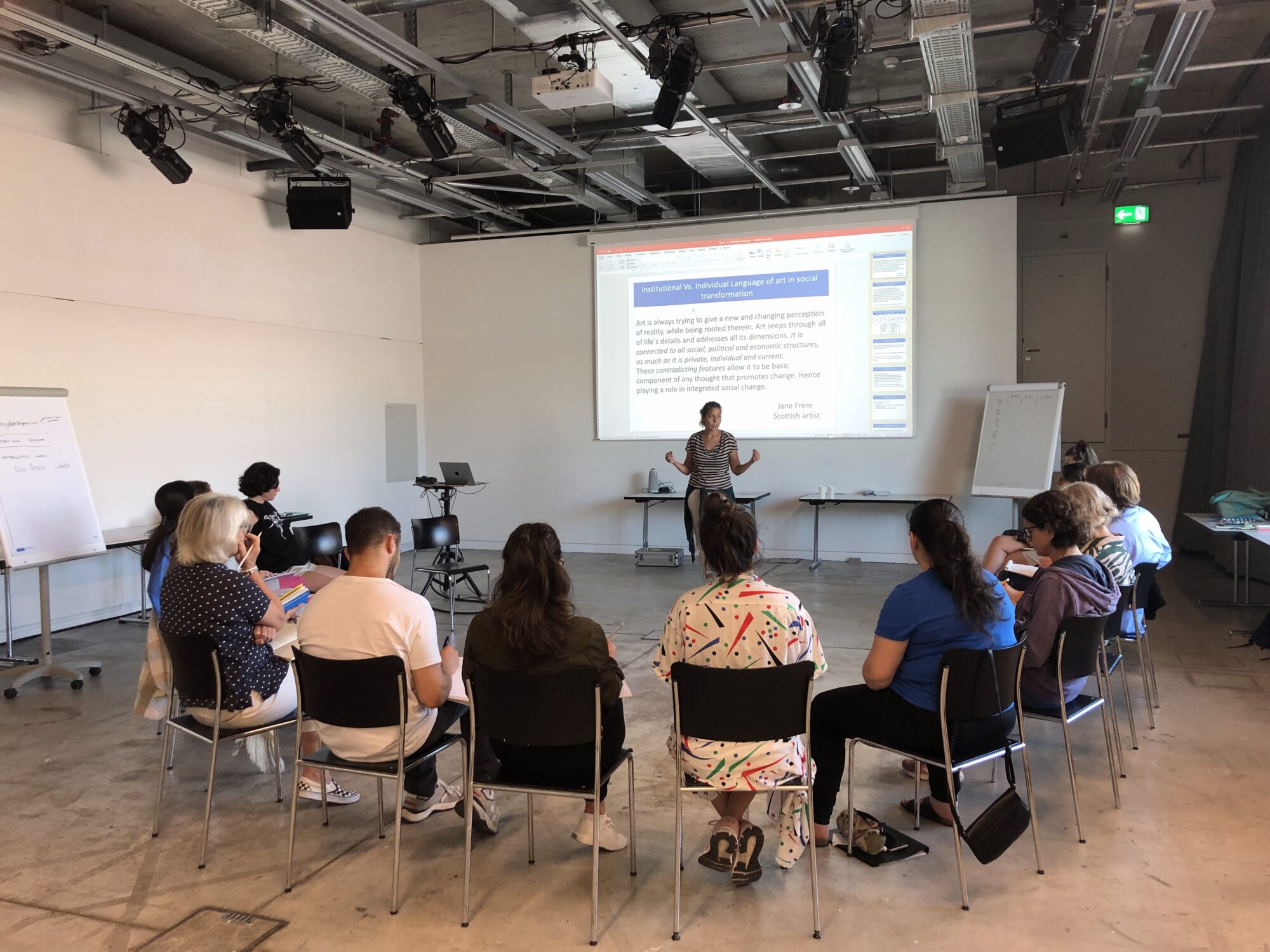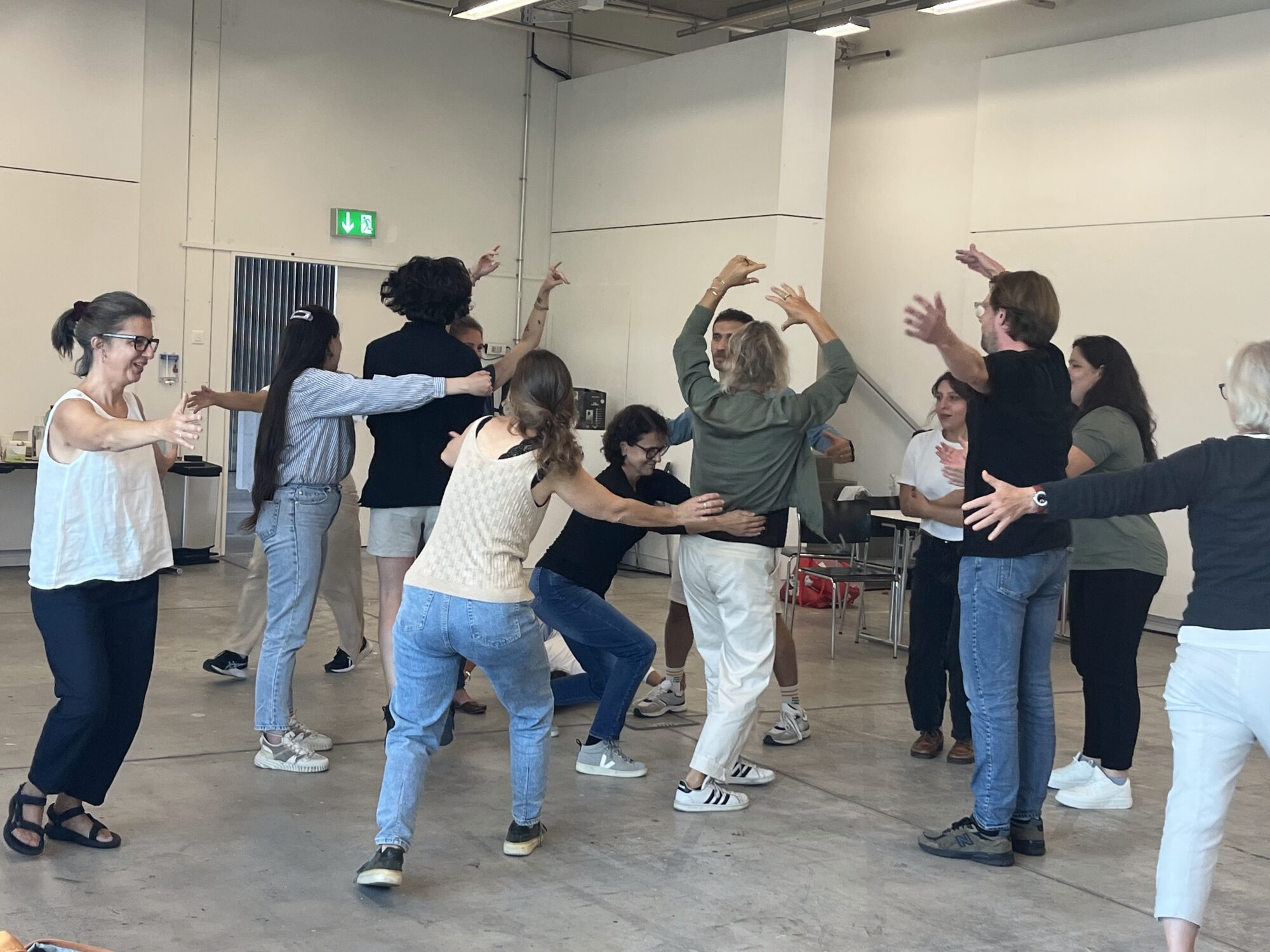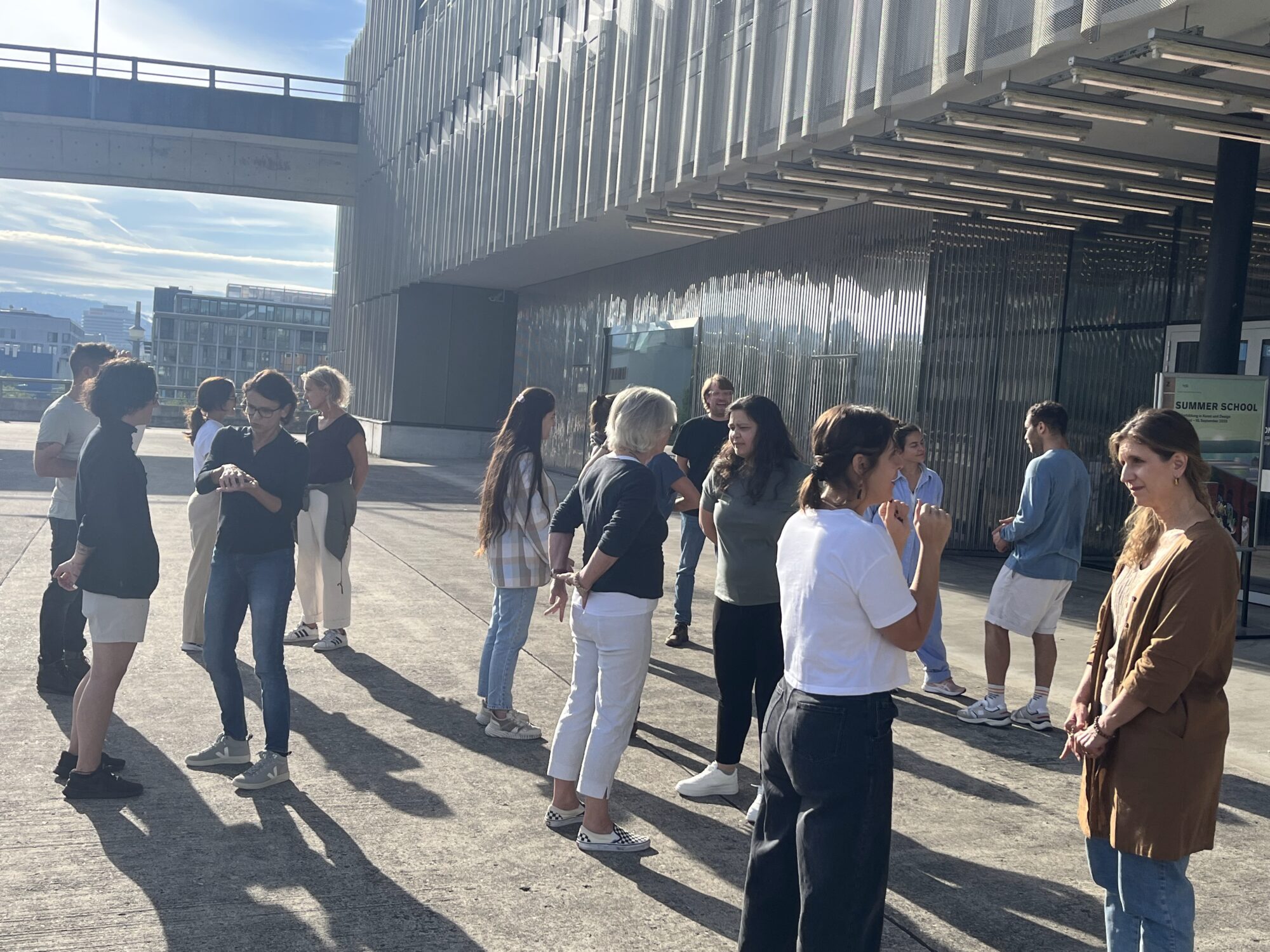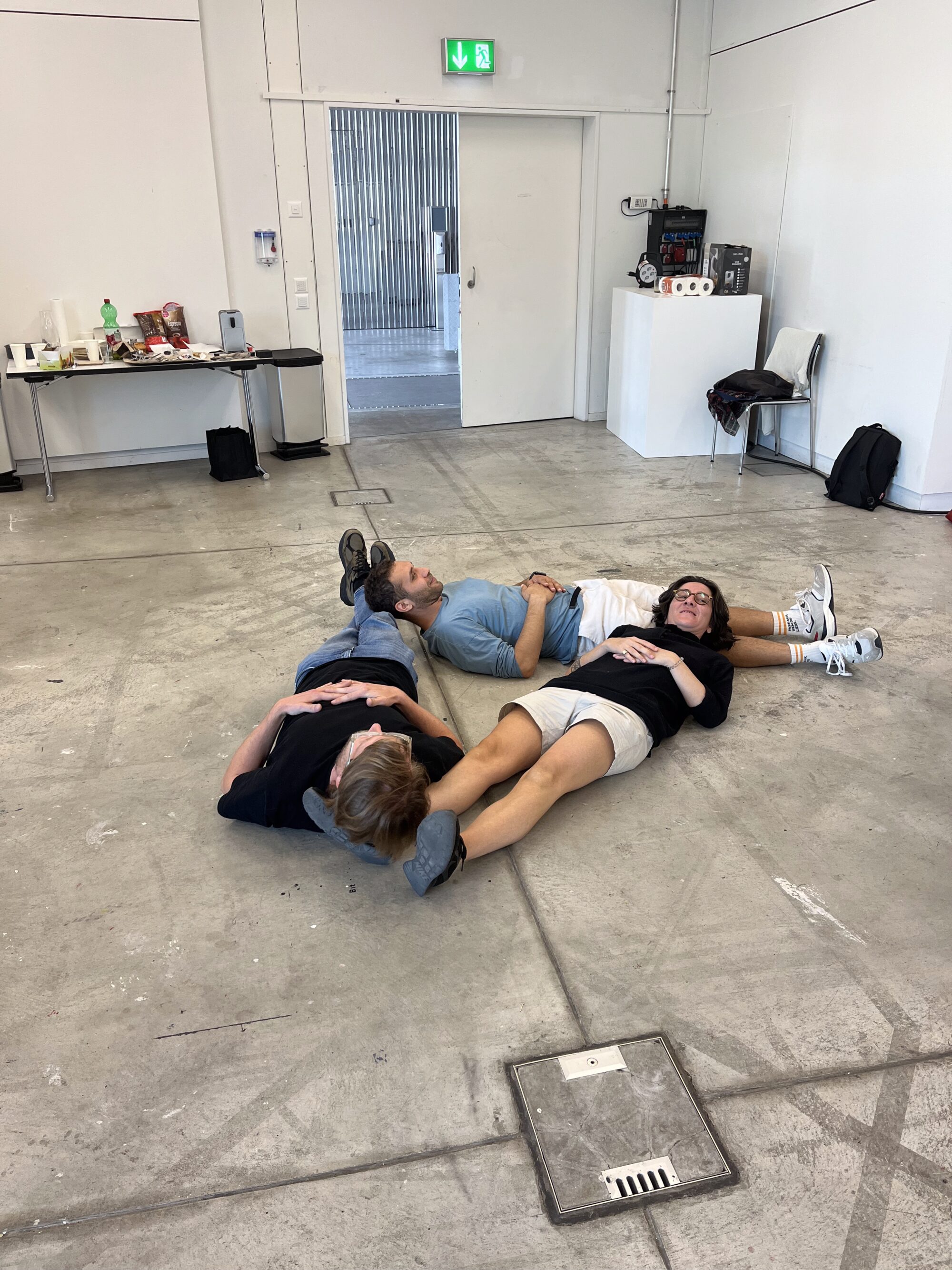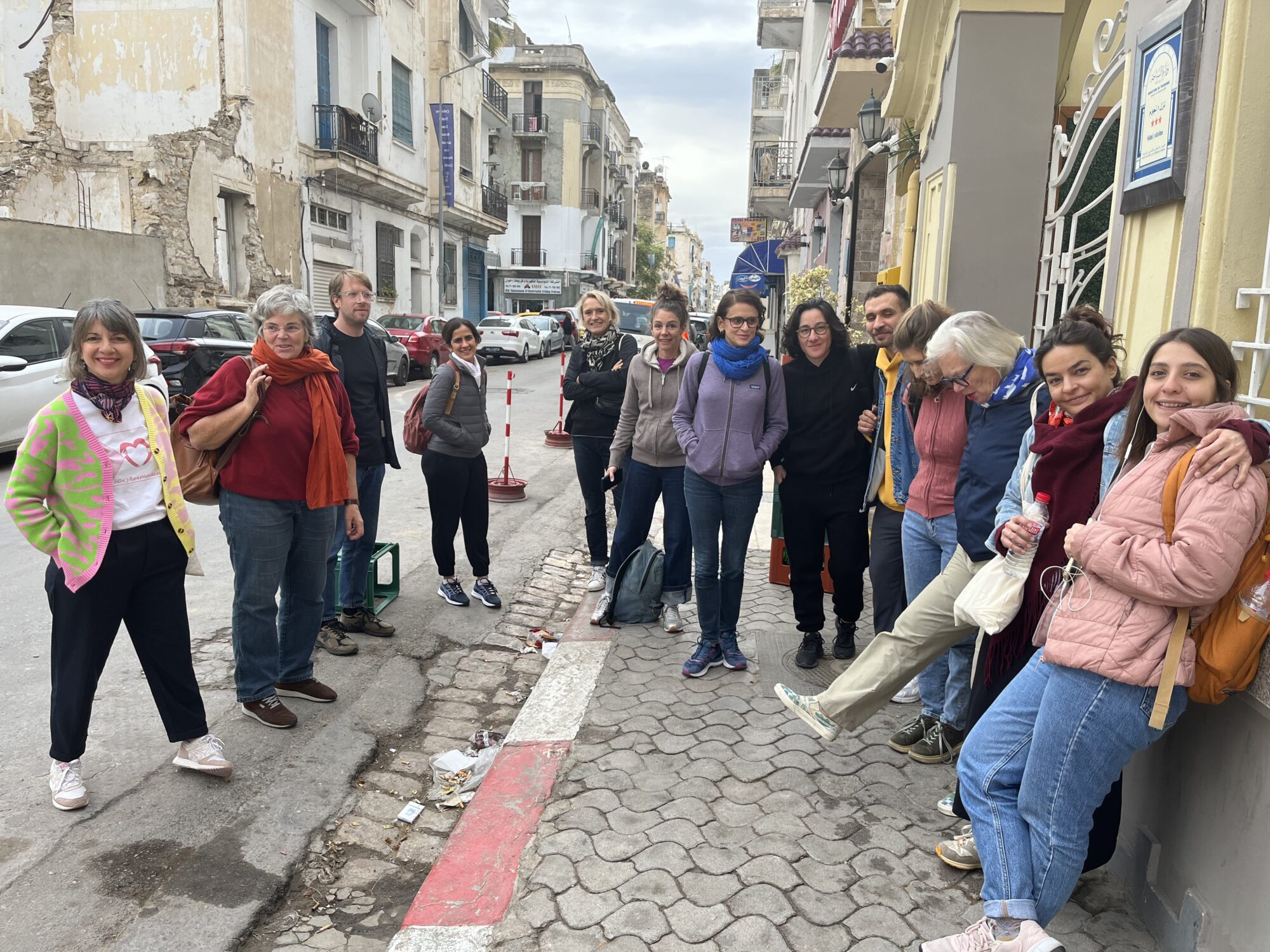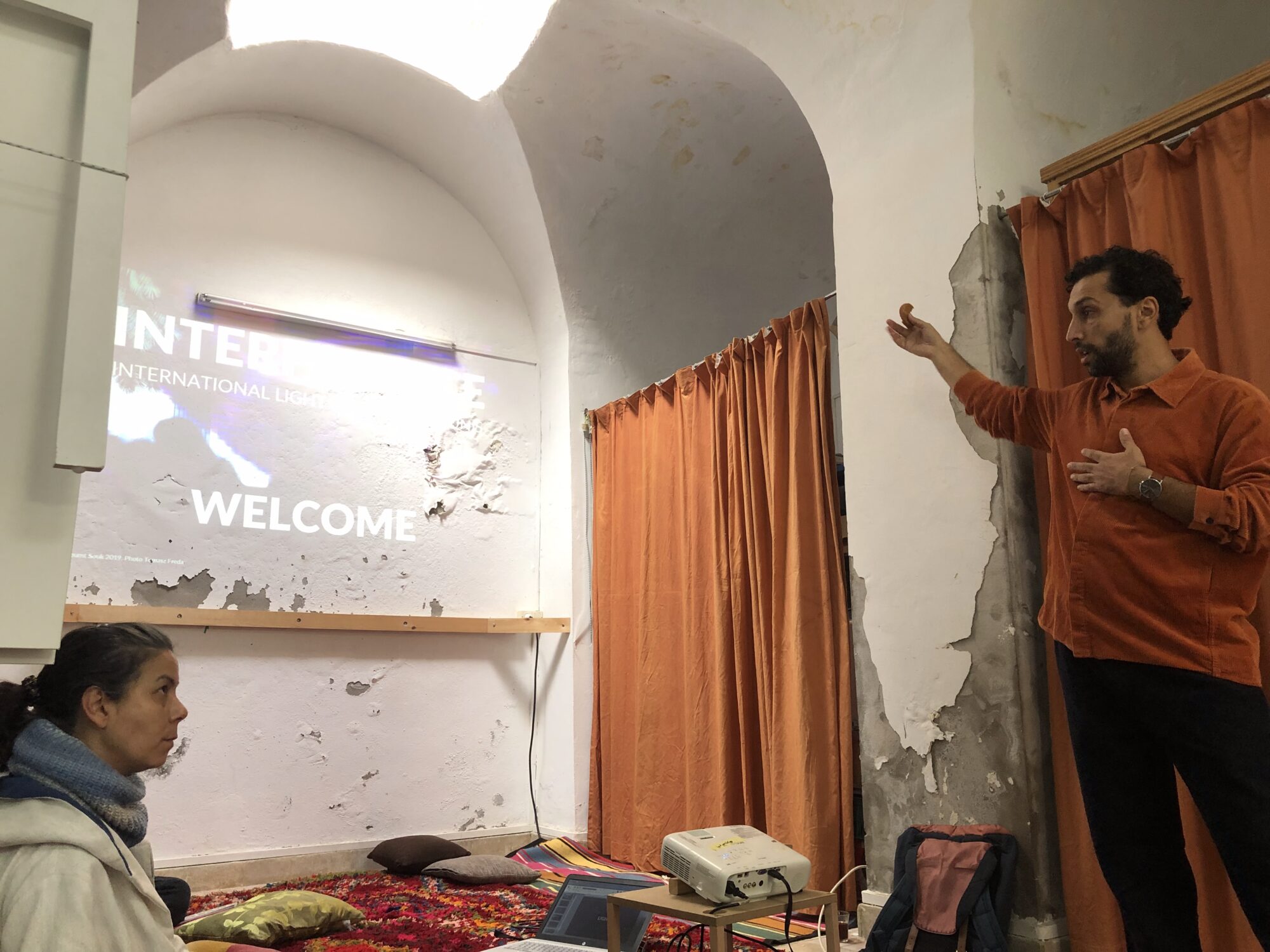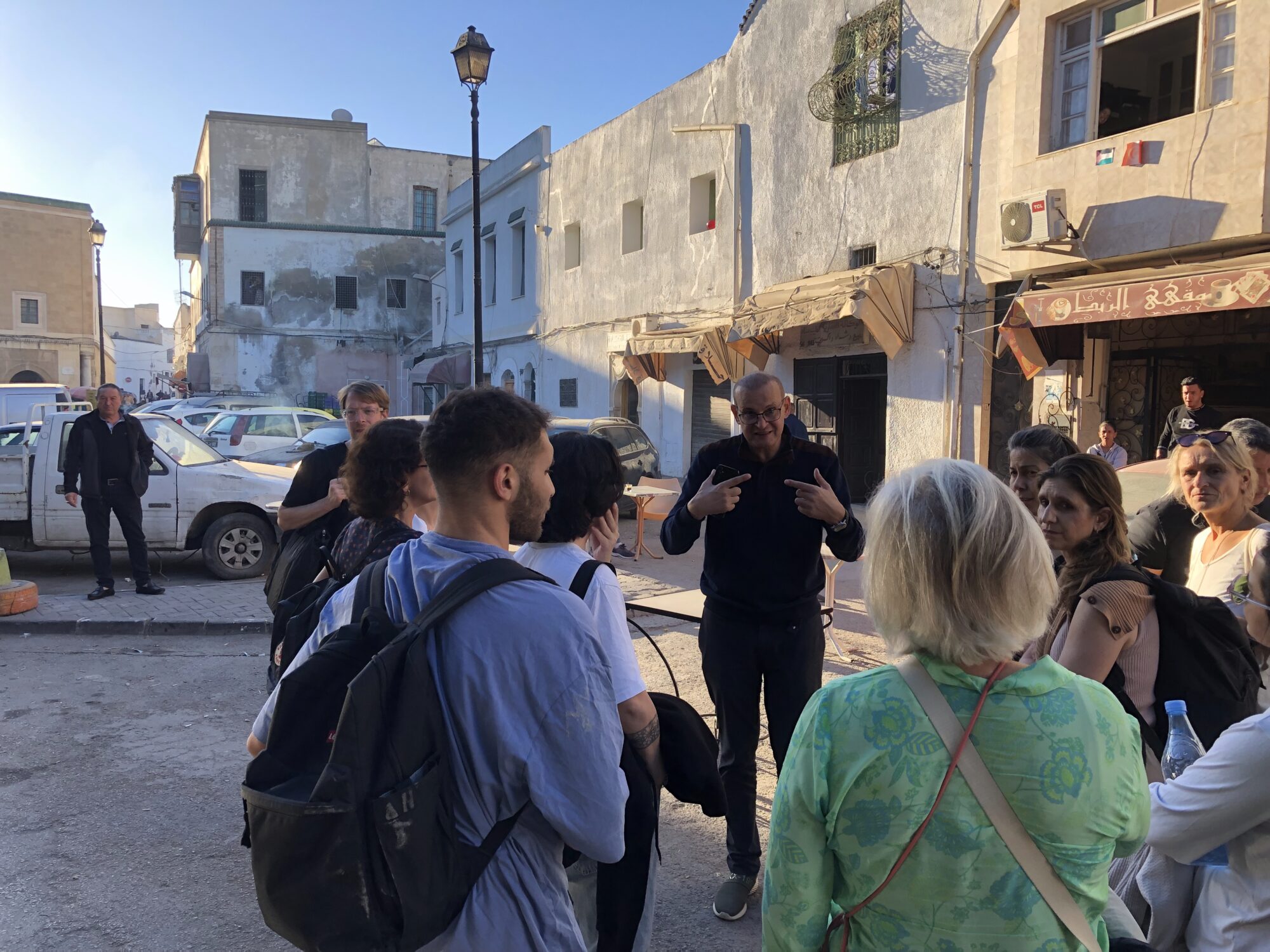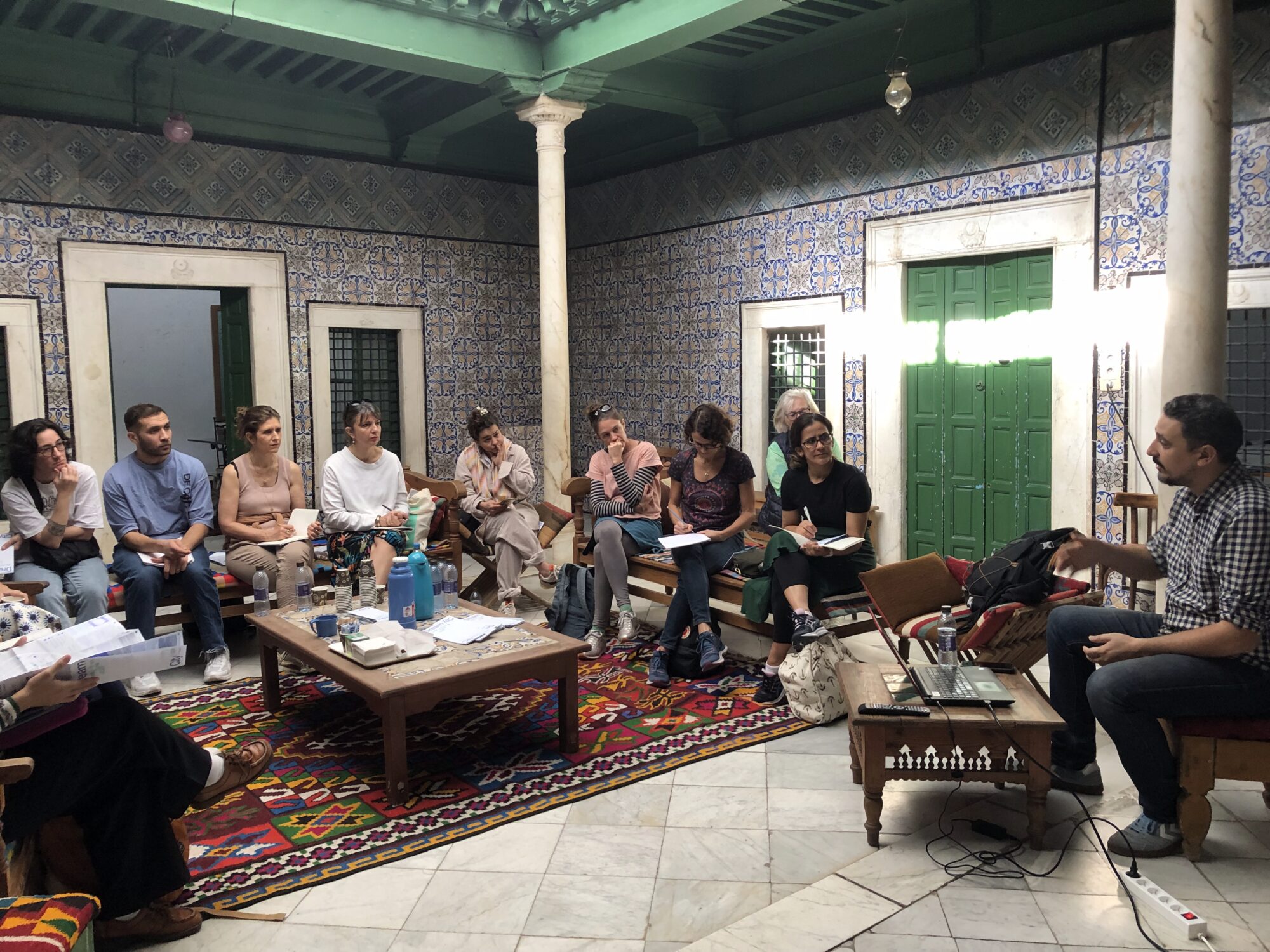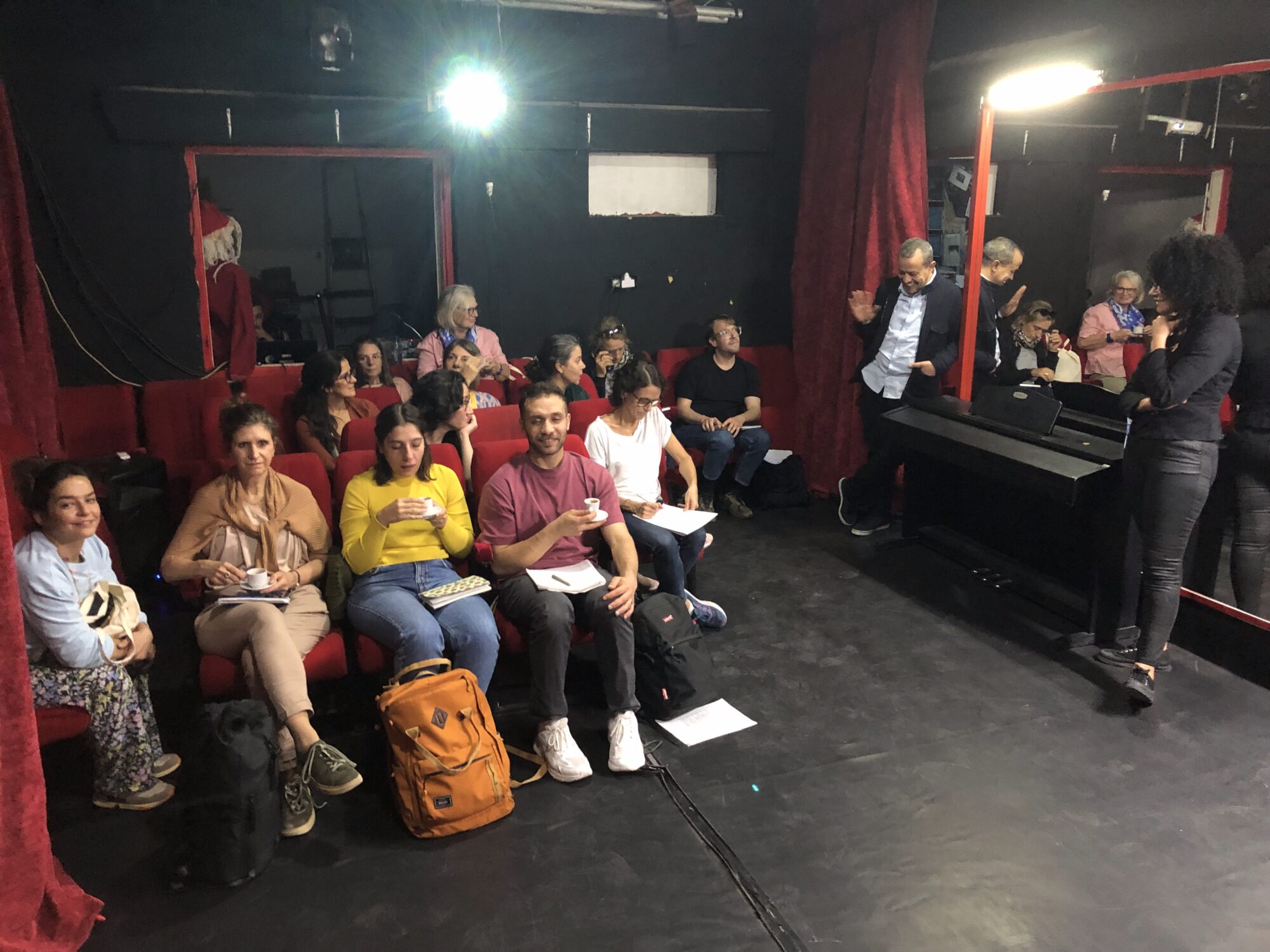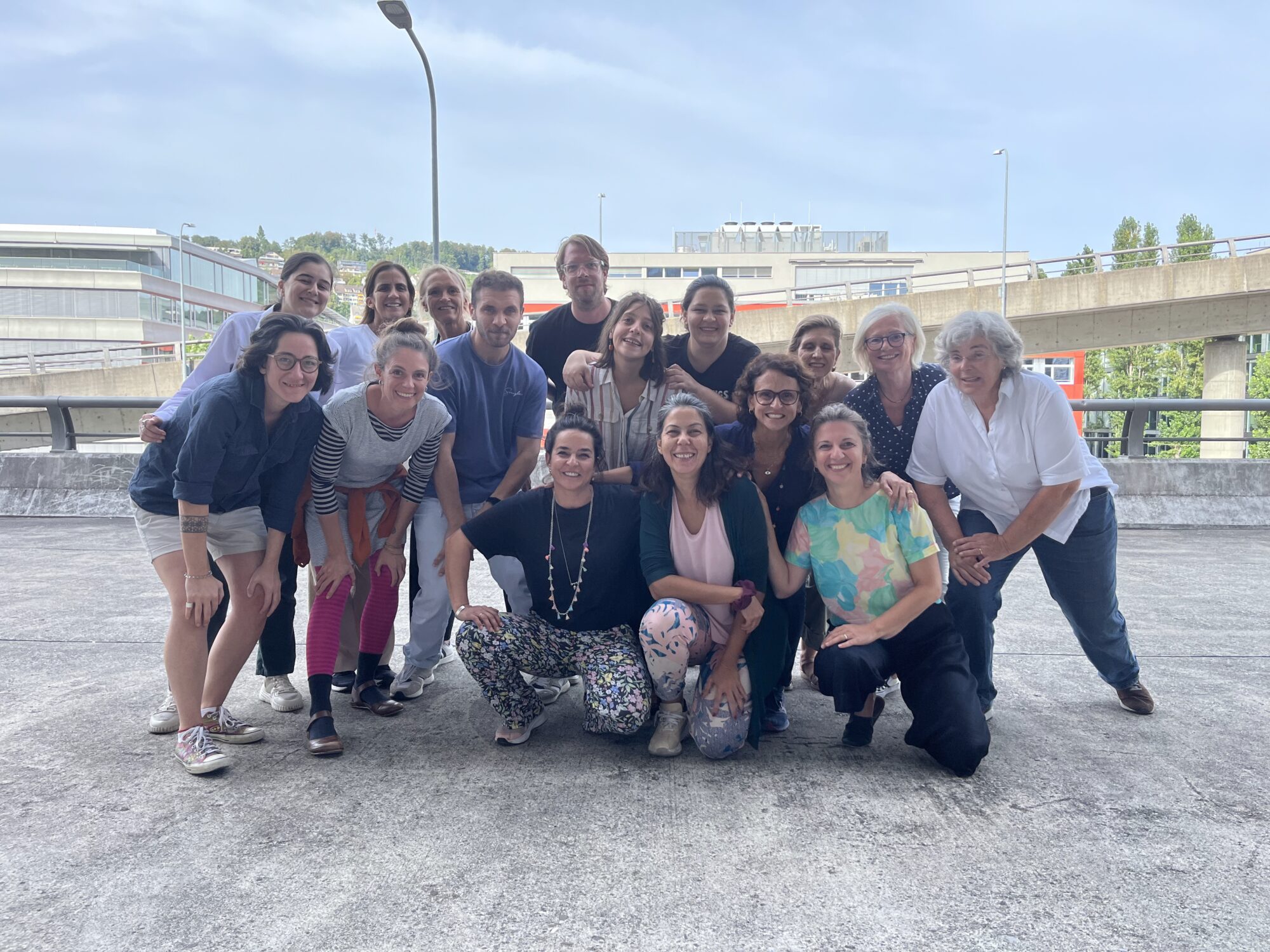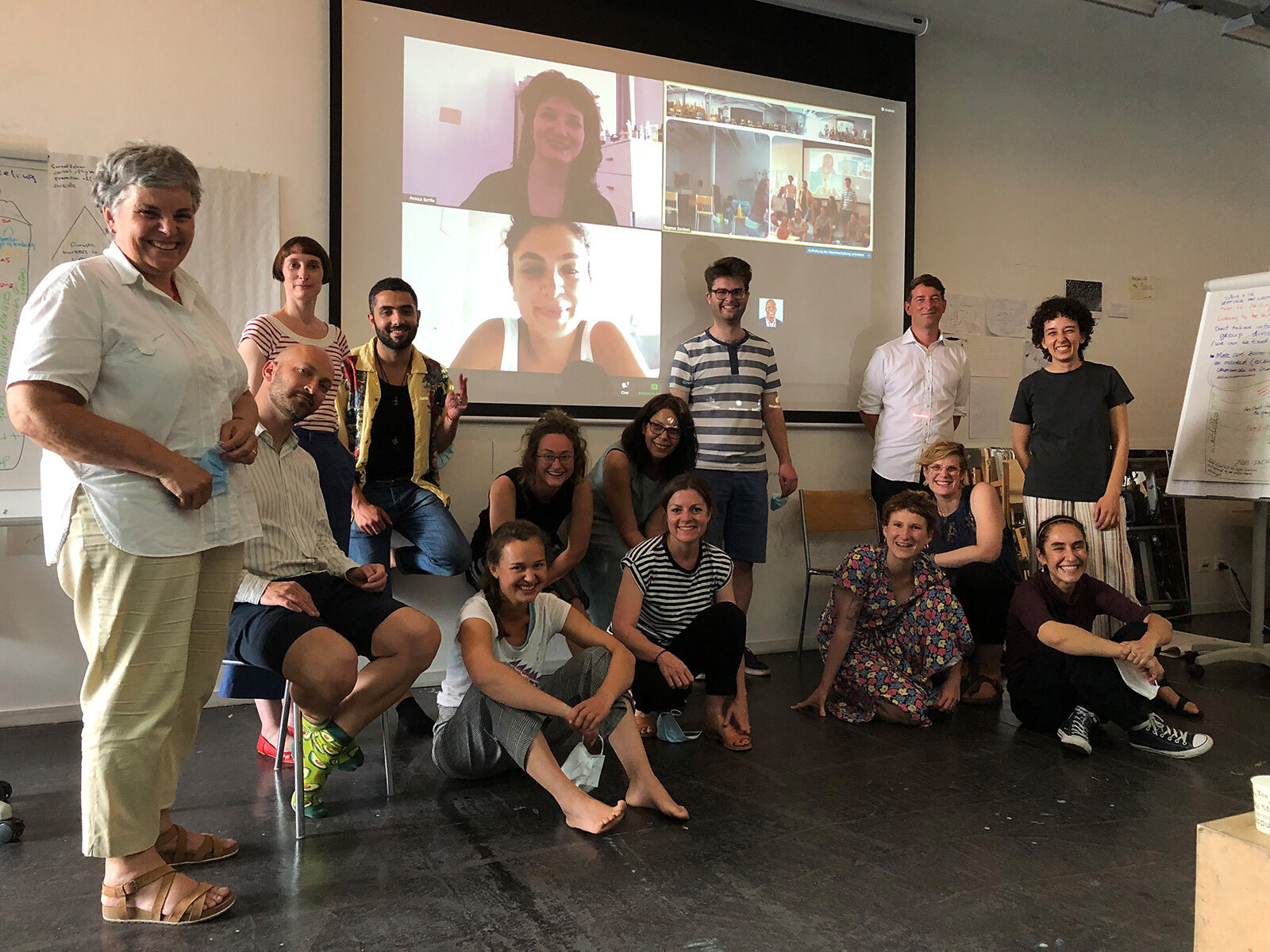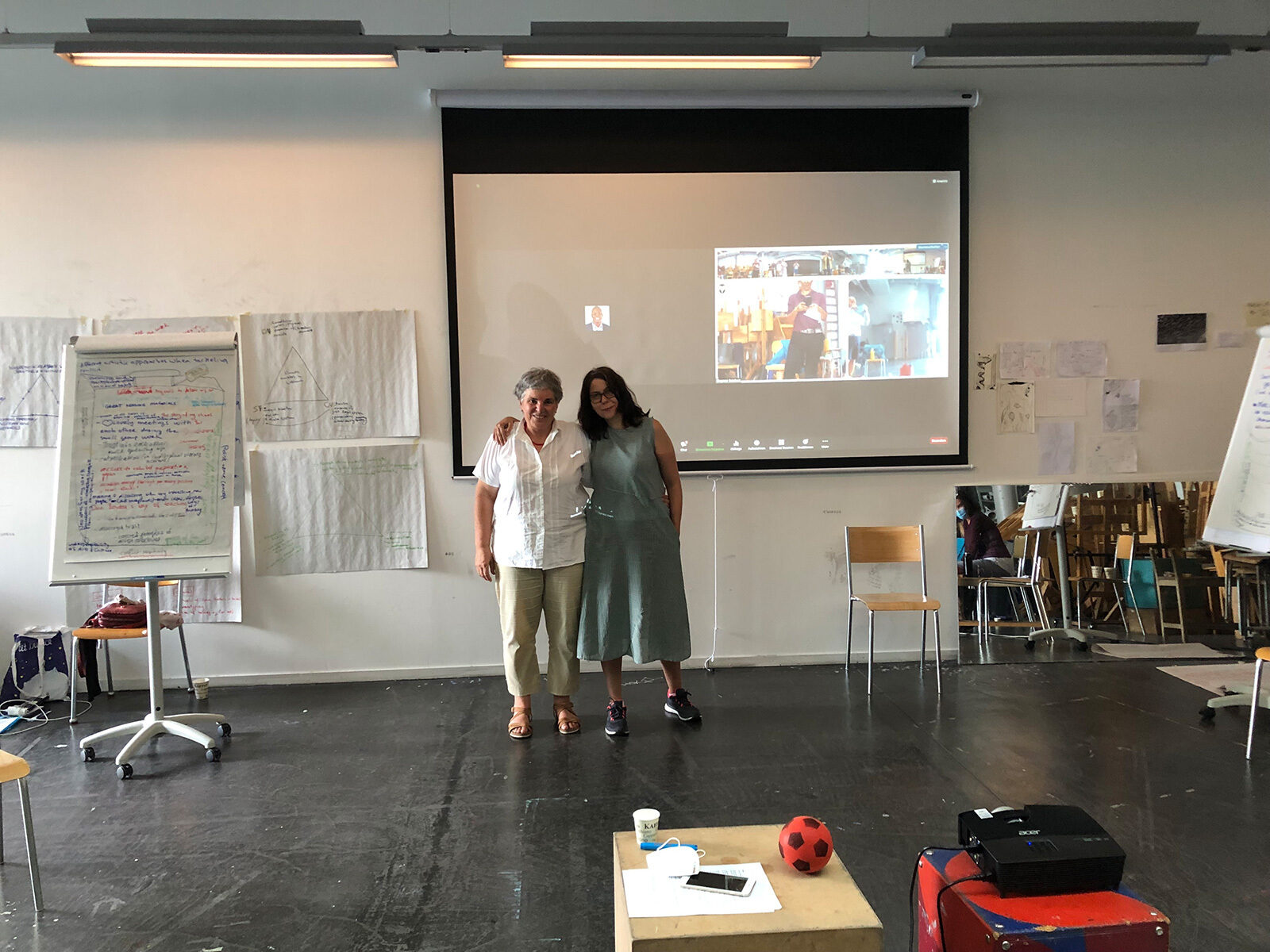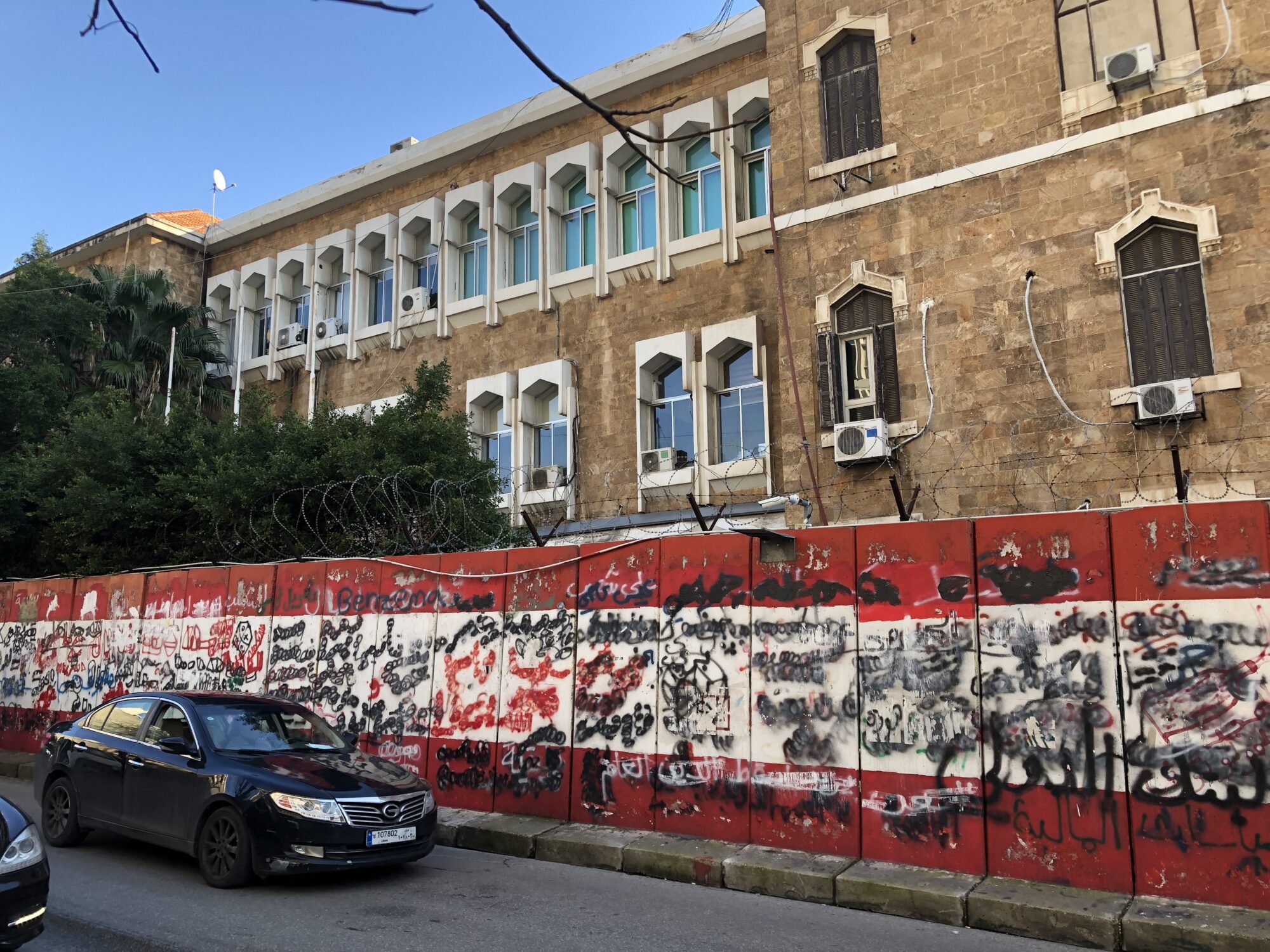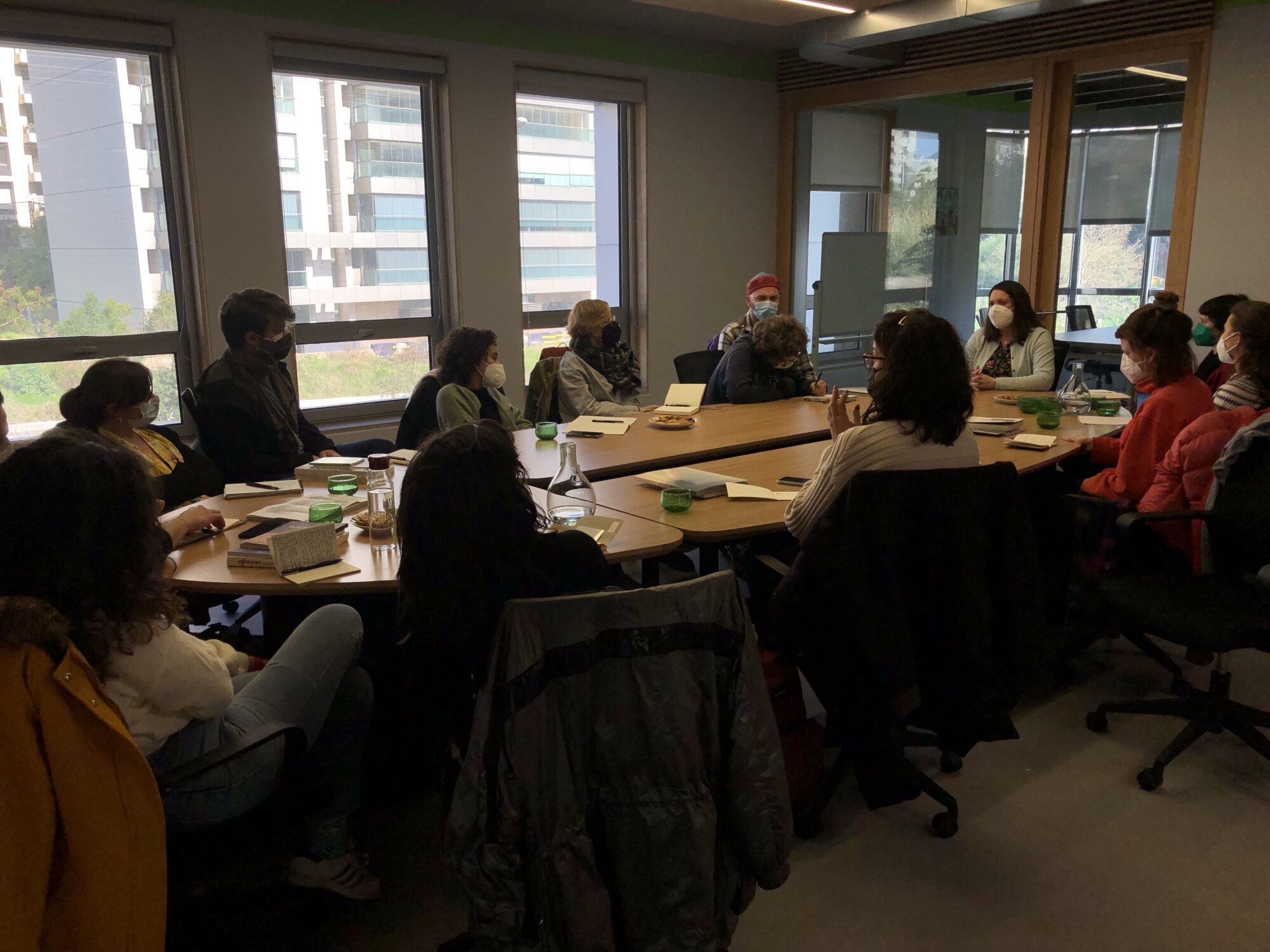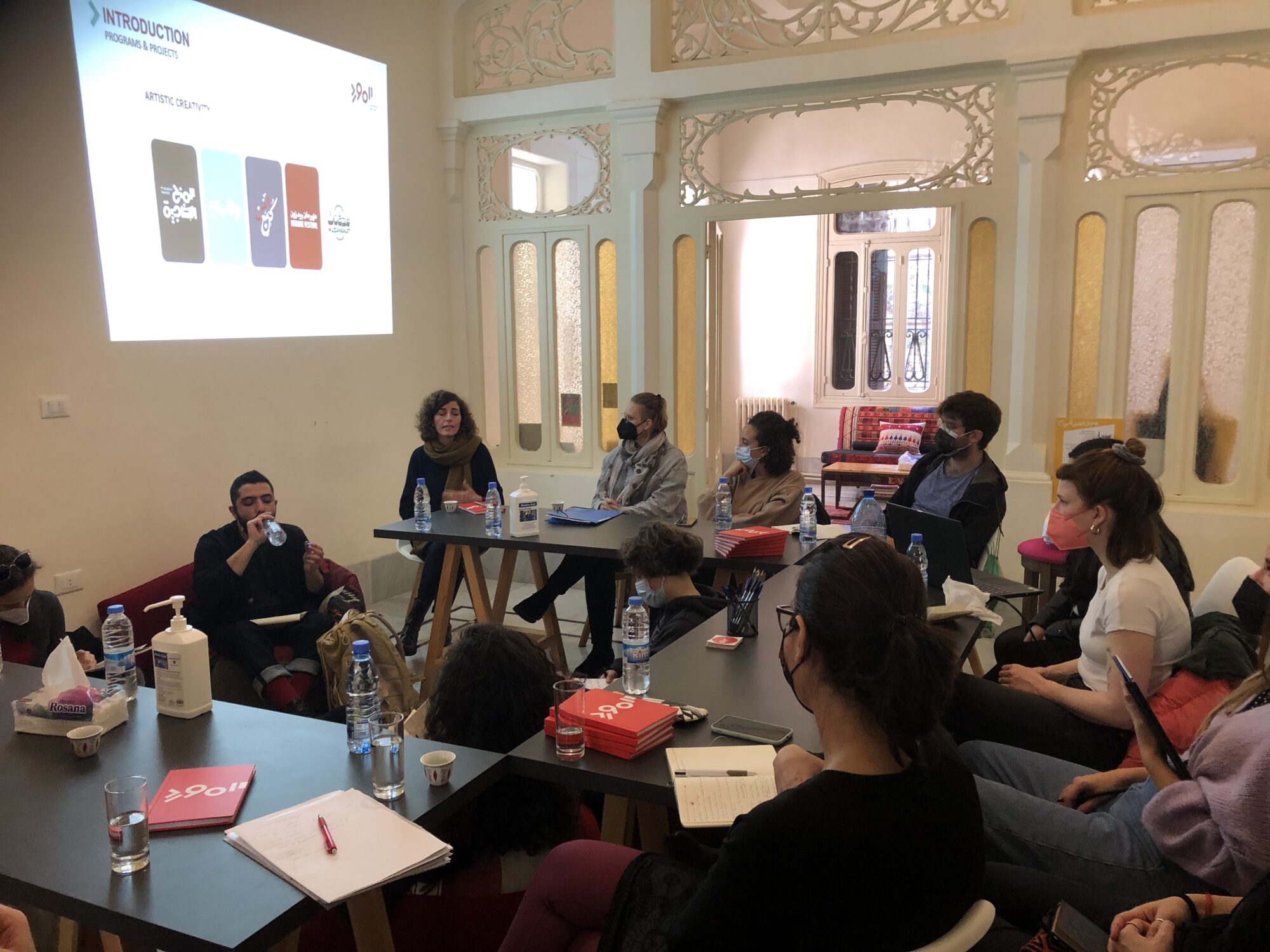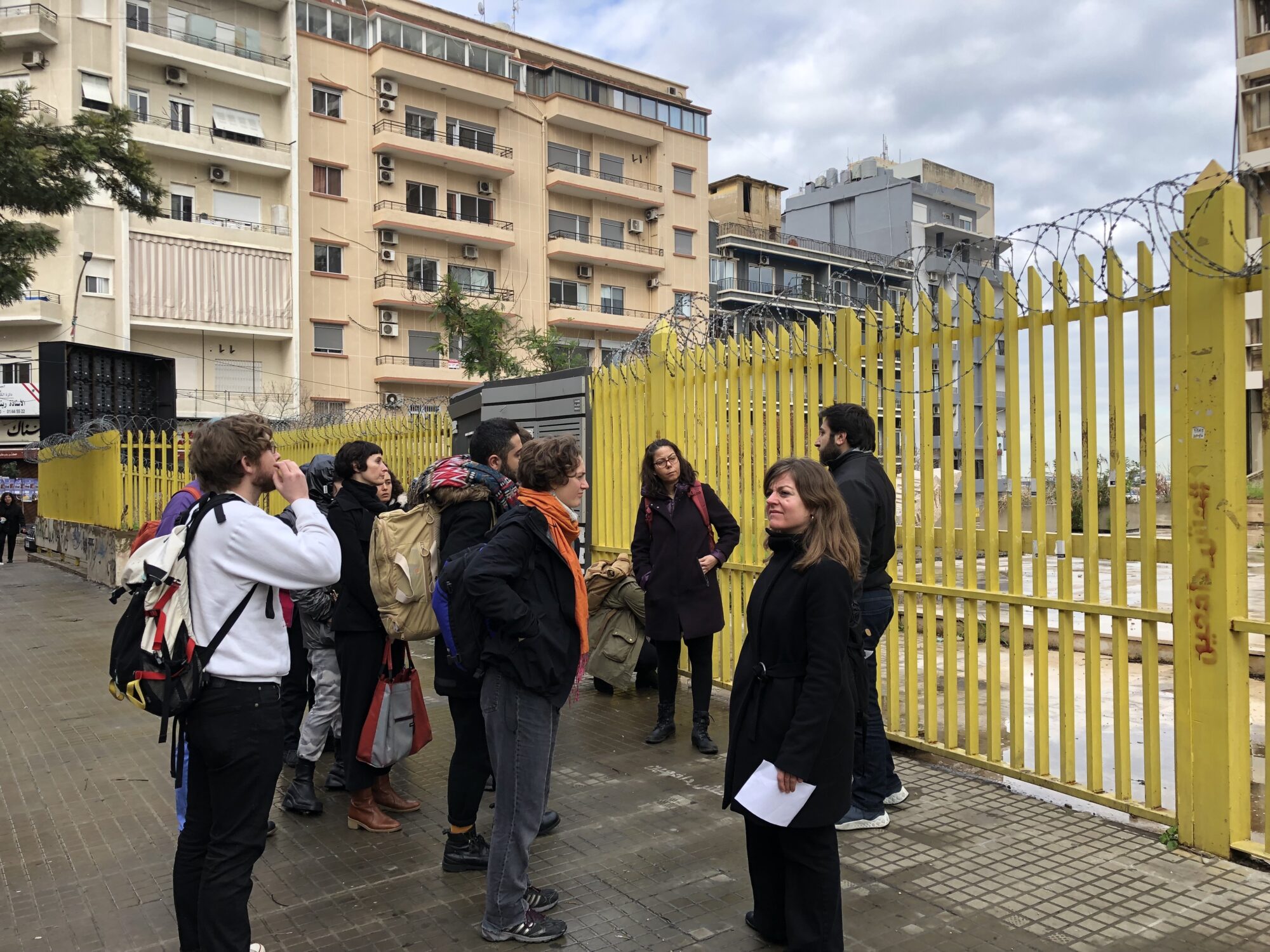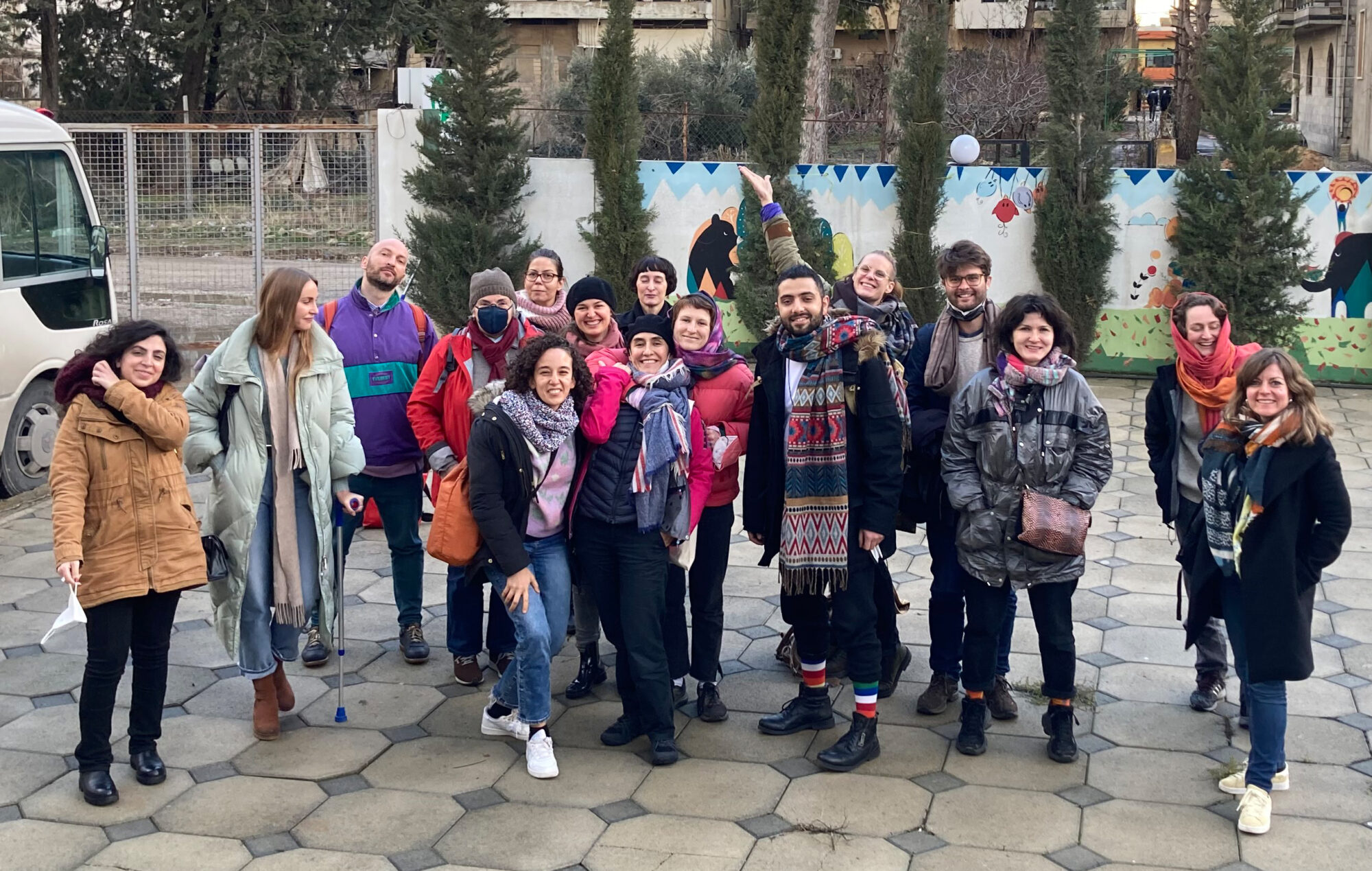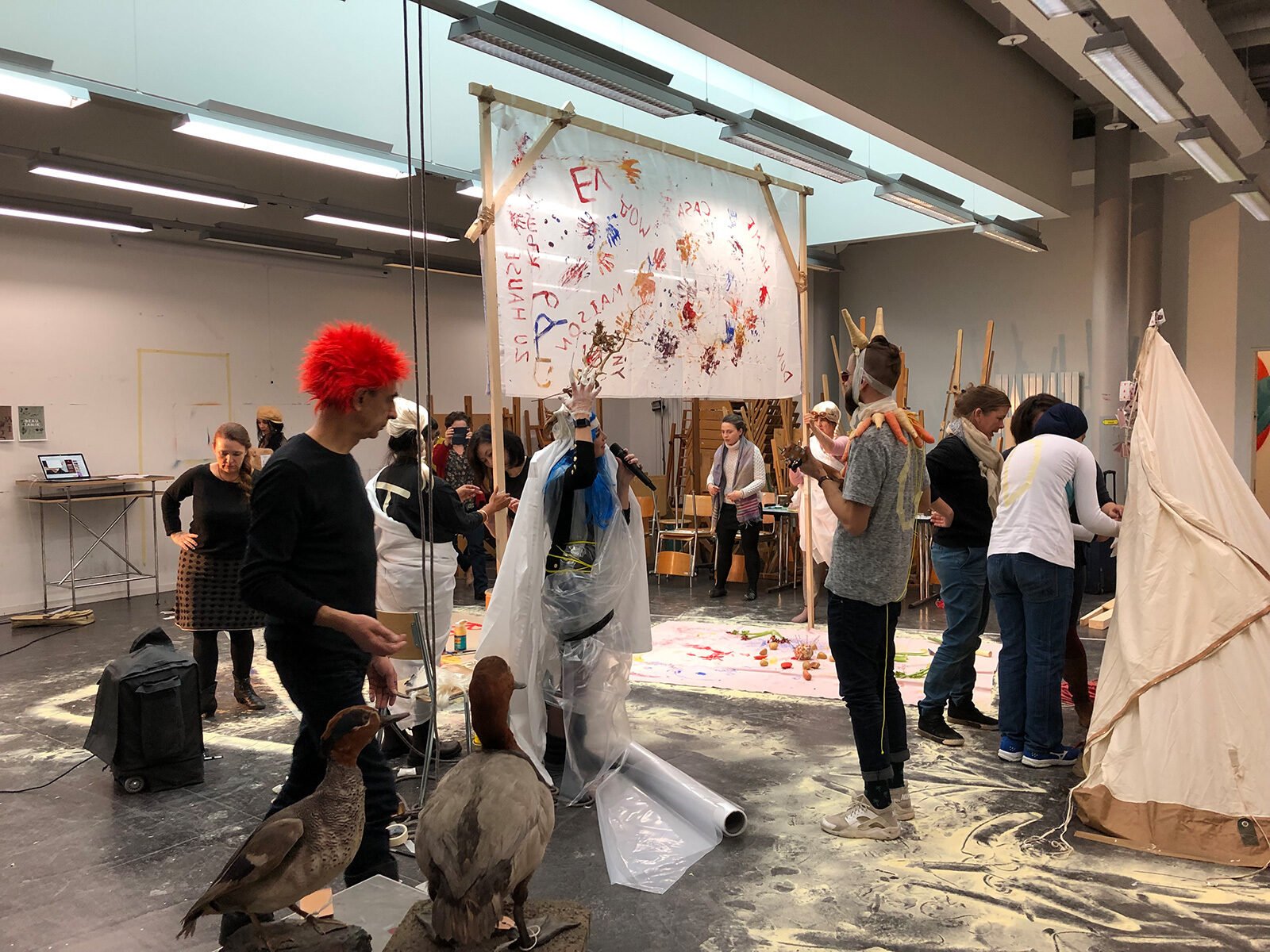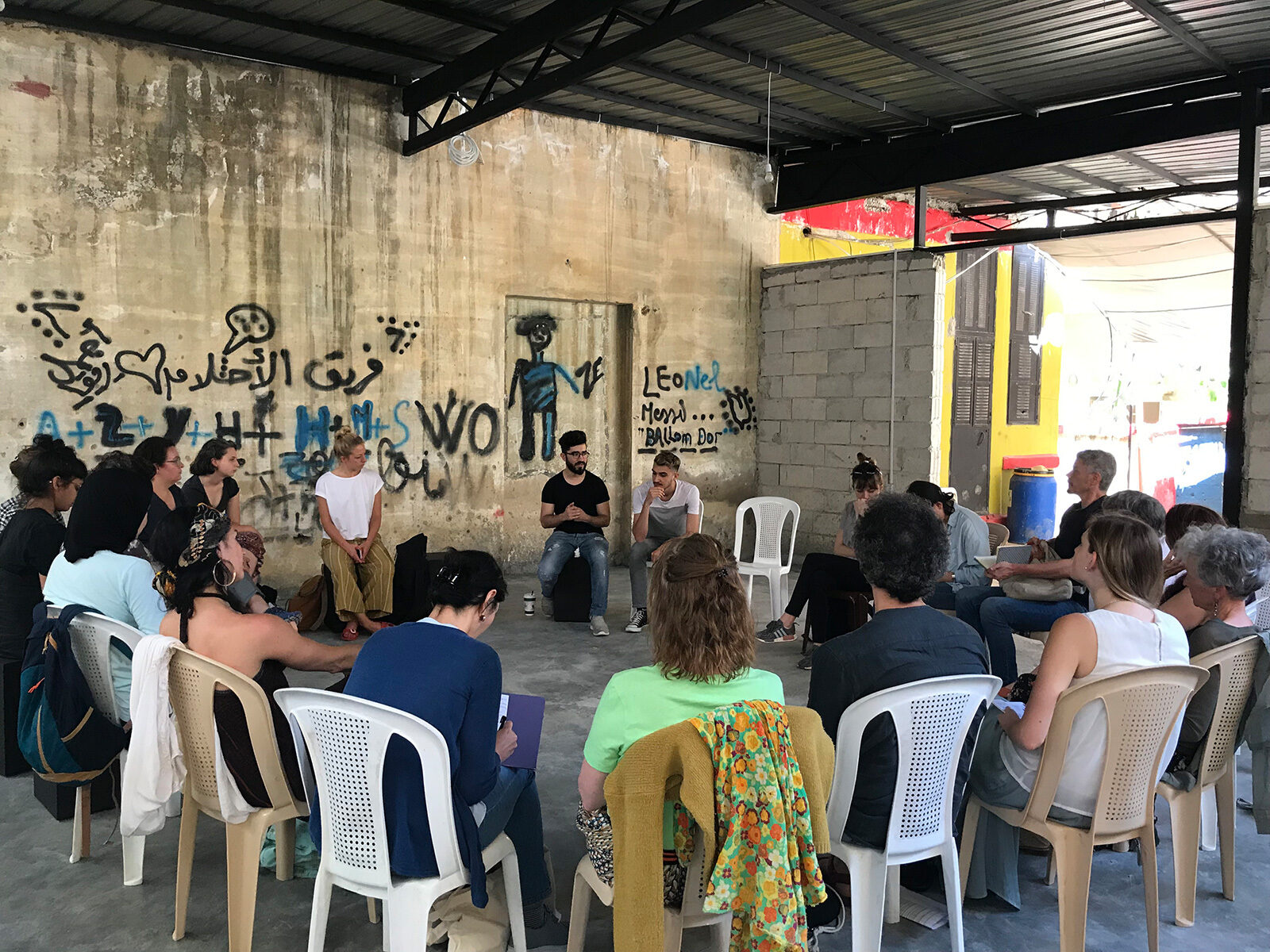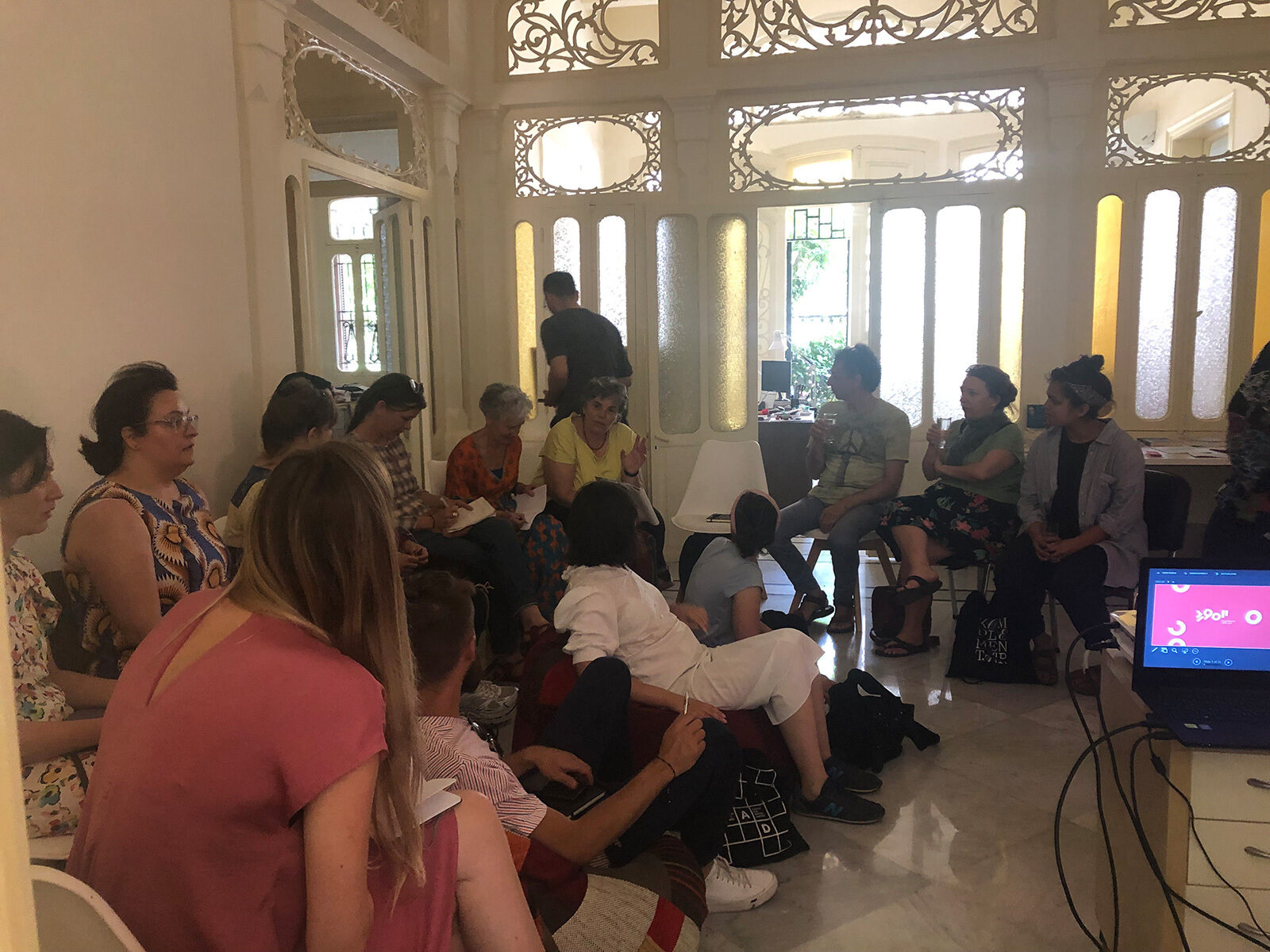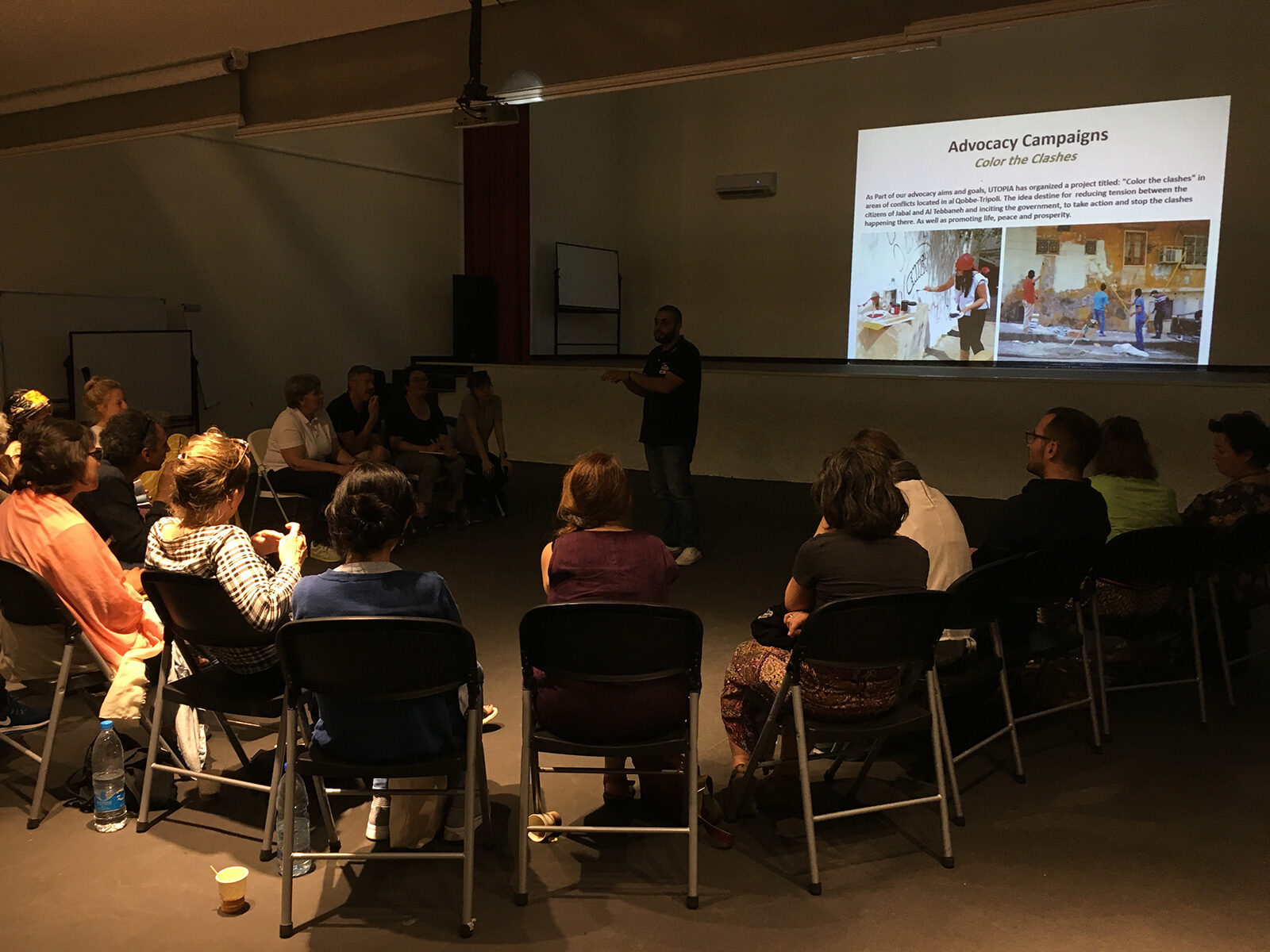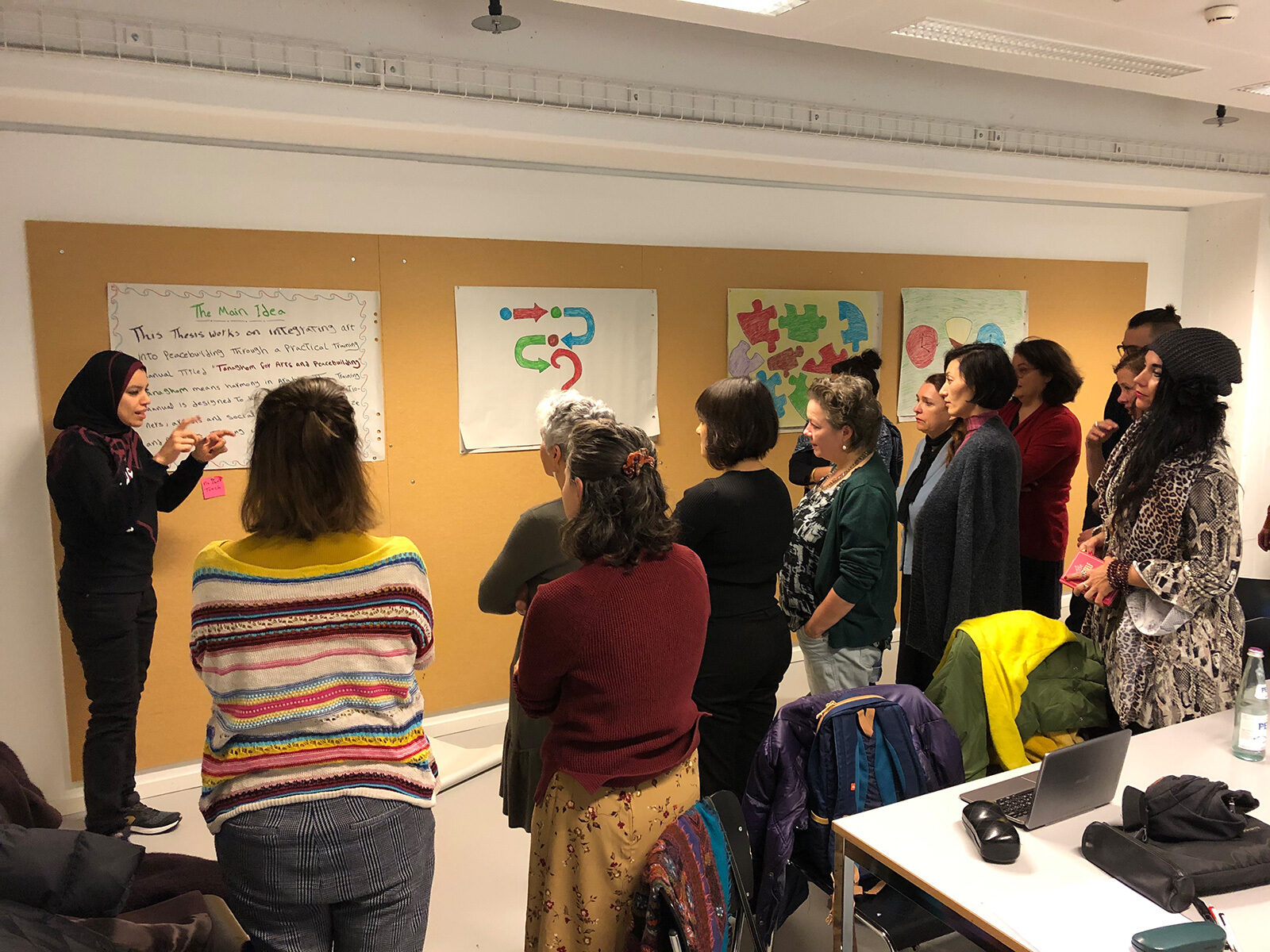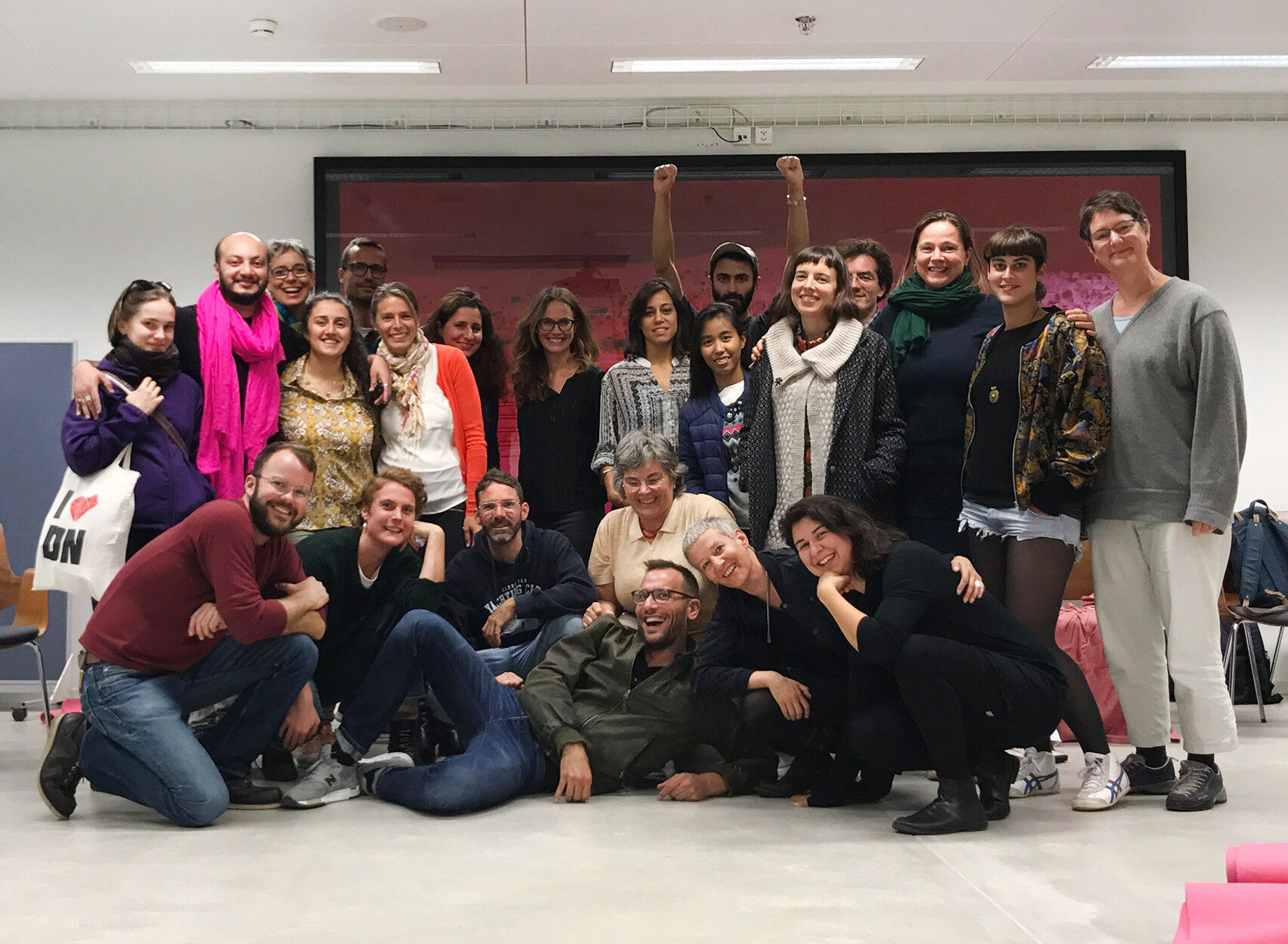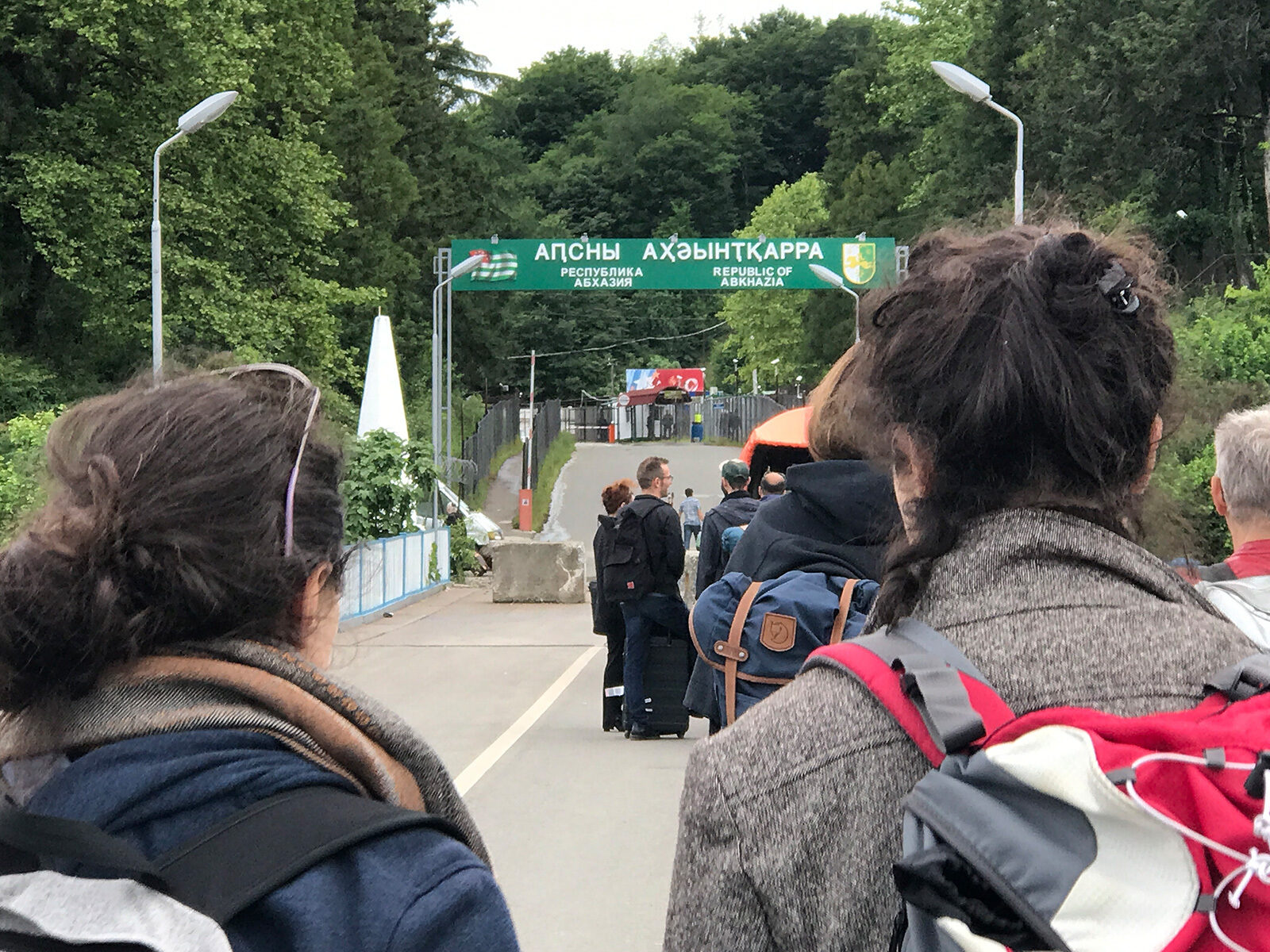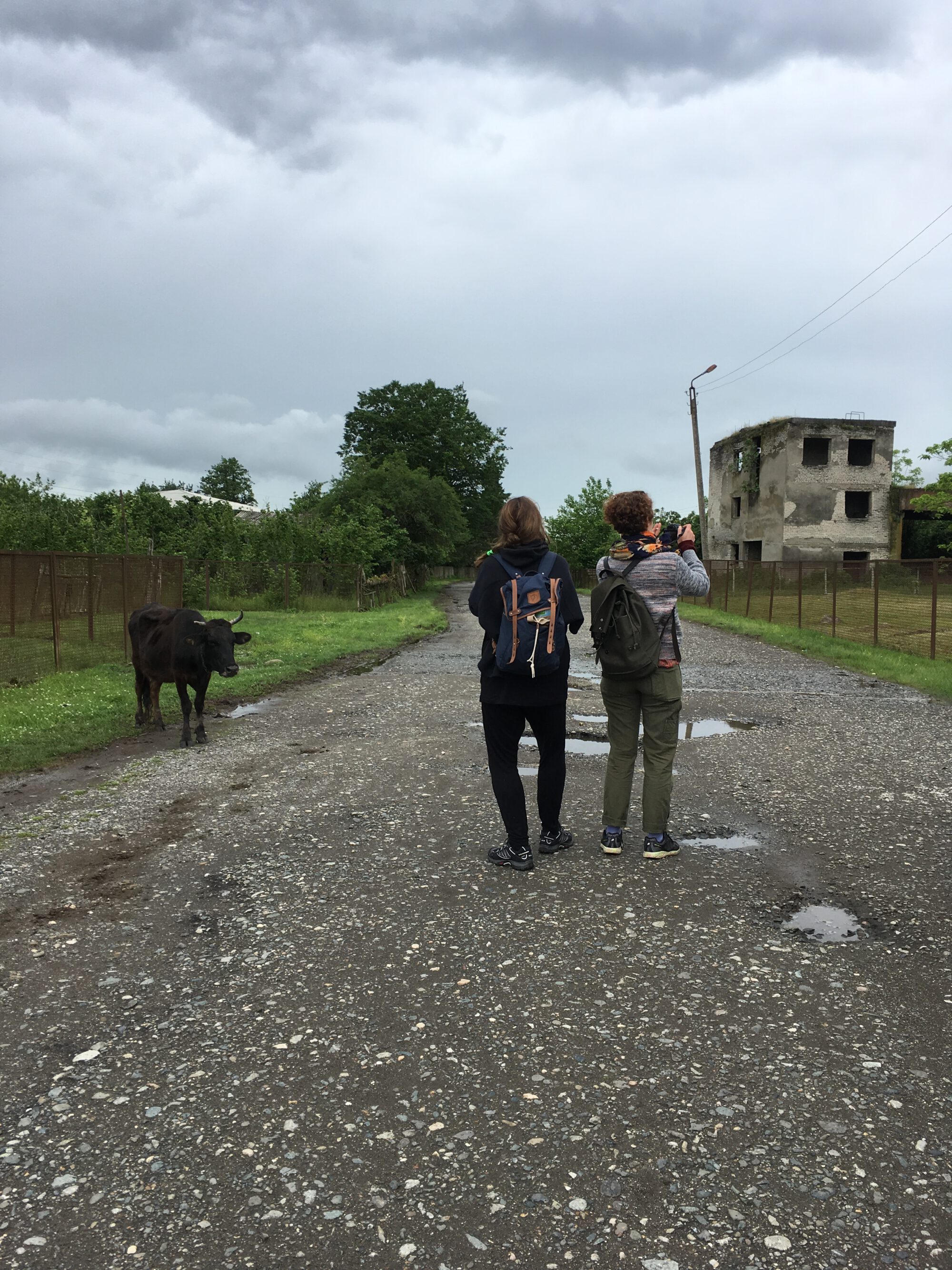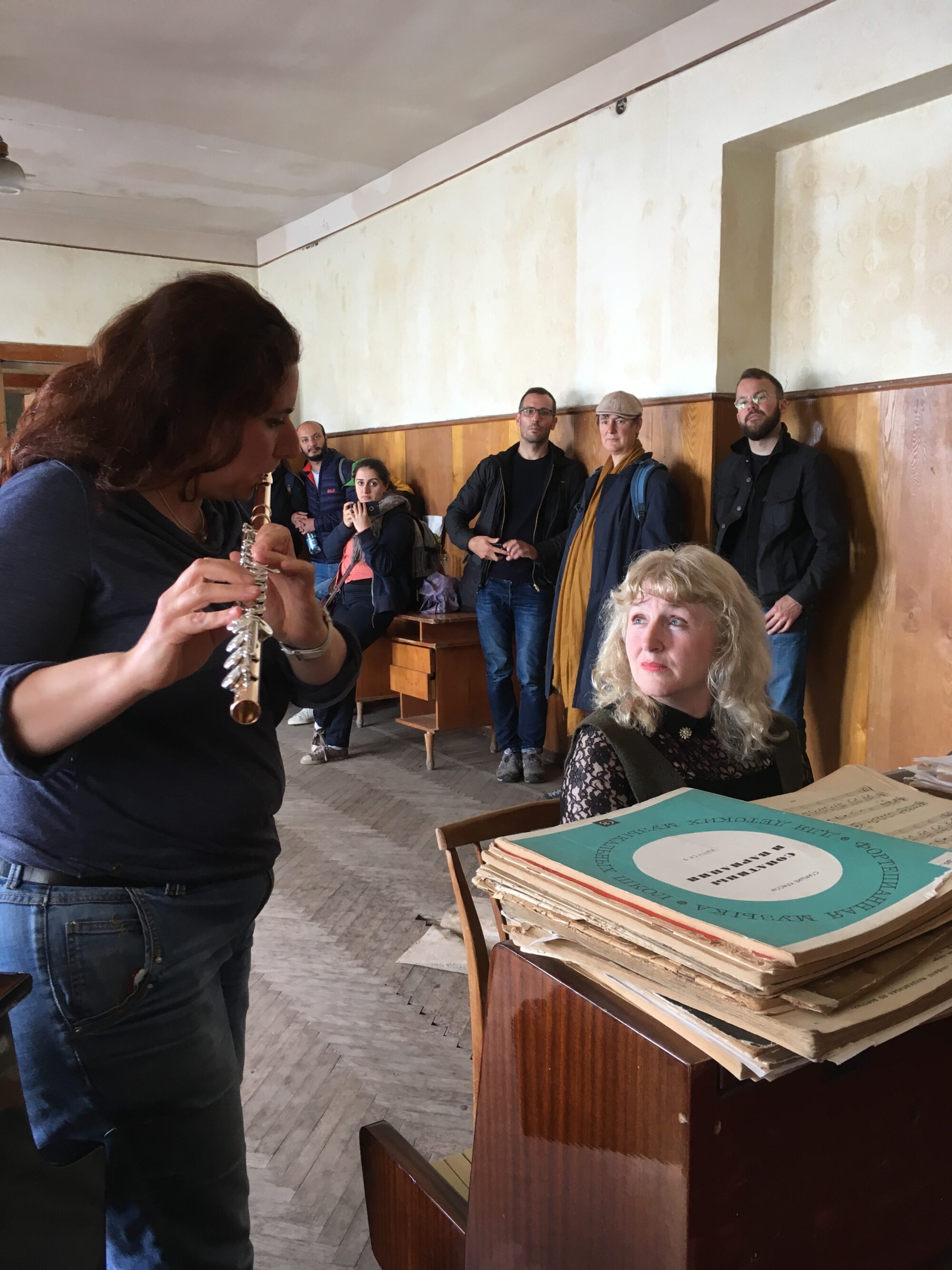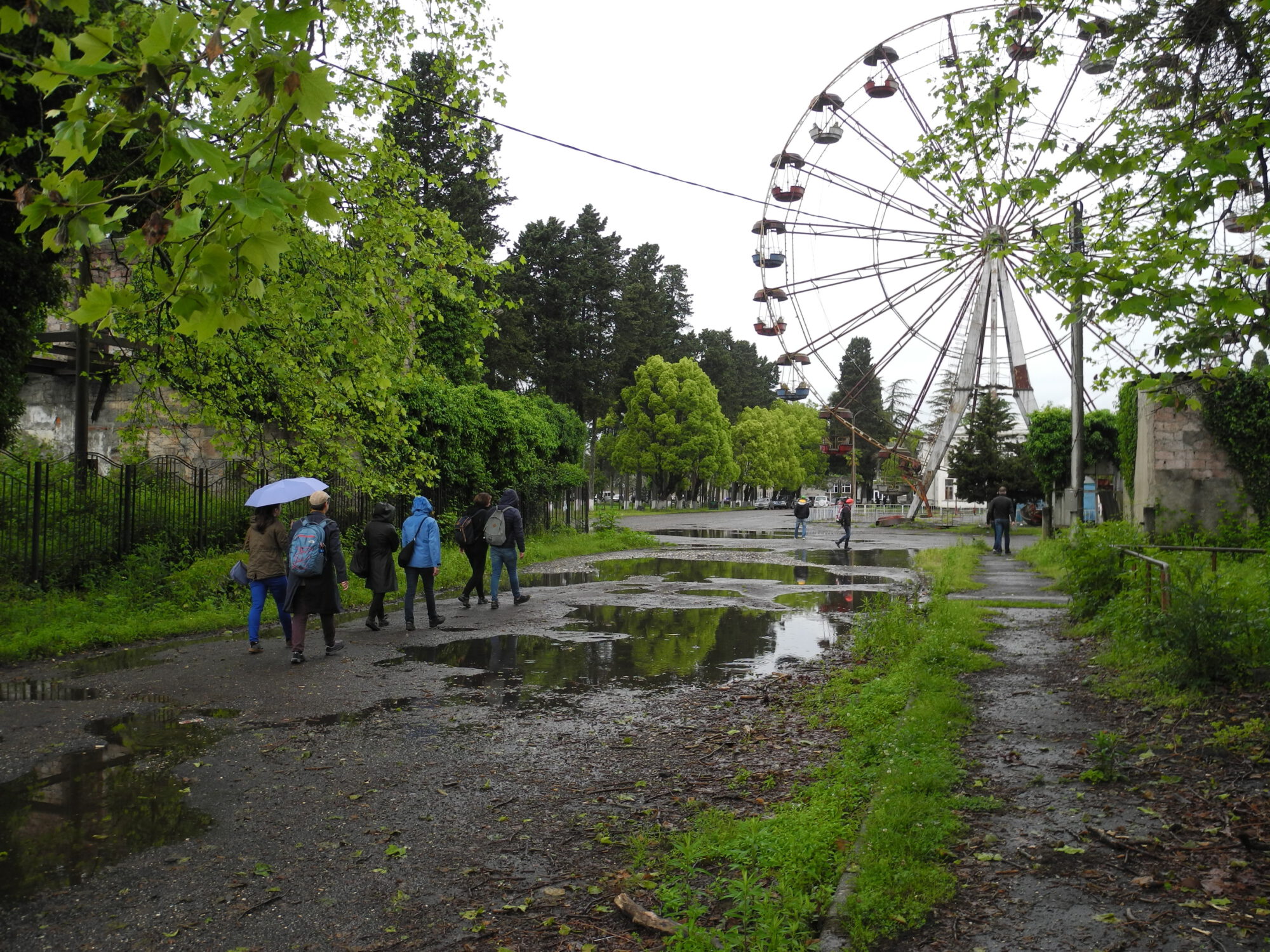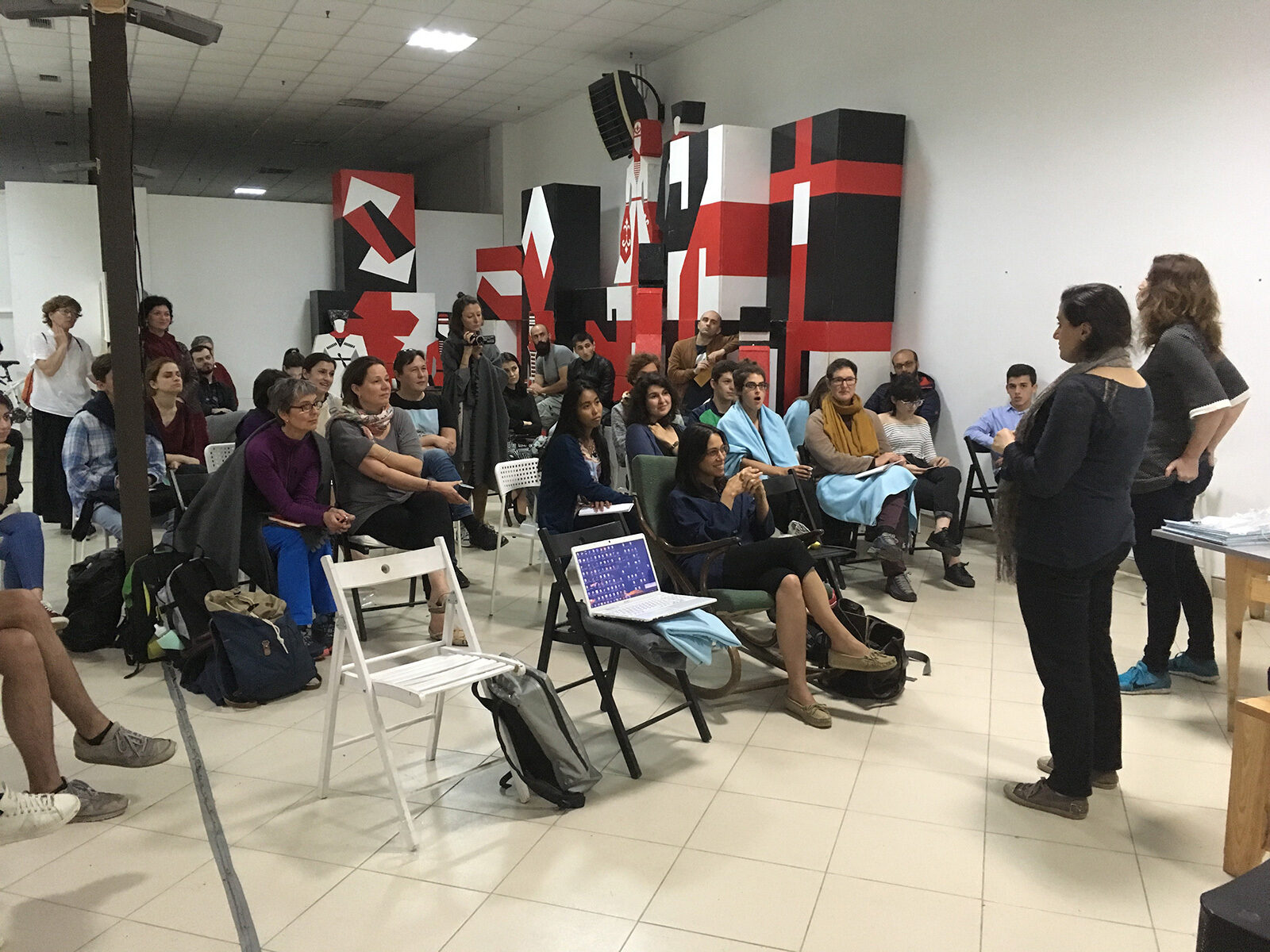CAS Arts and International Cooperation
How can art contribute to social change in crisis regions? What expertise do organizers and artists need for artistic collaborations in fragile contexts? Based on these questions, artasfoundation has developed a curriculum for the postgraduate course (CAS) Arts and International Cooperation at the Zurich University of the Arts (ZHdK). This course, which is also led by artasfoundation, is taught by experienced international practitioners from the fields of art and project management, as well as by researchers from Switzerland and abroad.
The focus of the curriculum is on theory and practice in the fields of contemporary art, international cooperation, humanitarian work and peacebuilding. On the programme are presentations and exercises, as well as a study trip to examine art projects carried out in conflict regions.
The programme is part-time and consists of four modules. It is aimed at those who are active in international cooperation and would like to expand their expertise in designing and organising art projects, as well as experienced artists and curators who would like to deepen their knowledge of international cooperation. It is also aimed at artists, curators and organisers from fragile contexts who wish to involve international partners in their projects.
CAS Arts and International Cooperation 2023
This is the fourth time that the course, which we offer as part of the ZHdK’s continuing education programme, has taken place. It followed the curriculum on art initiatives in conflict-affected regions, which already proved its worth in the last edition with its dual focus on the cooperation between the Global South and North and on the relationship between the needs of artists and funding organisations. This time, we were able to invite further distinguished experts as lecturers.
A key factor for the learning of the course was the exchange between its participants. They came from regions as diverse as Western Europe, the Caucasus and Arab countries. In view of the current escalation of violence in Eastern Europe and the Middle East, the course provided them with a framework in which they could explain their respective perspectives to each other. The group thus became a model for friendly and respectful international exchange. It is not an exchange that yields quick solutions, but one that shows a common ground in each individual’s concerns and worries, and in the wish to engage. Here, dealing with the potential and limitations of artistic initiatives in conflict regions becomes concretely relevant.
In this year, the destination of the study trip – a central element of the course – was Tunisia. Rana Yazaji who directs the course together with Dagmar Reichert could draw on an established network of local cultural institutions. We visited many of these institutions and heard about their work: impressive achievements in a difficult political and economic environment! It showed what artists can achieve through long-term continuity in their commitment and pragmatic mutual support.
In addition to the presentation of the diploma theses and the awarding of the Certificate of Advanced Studies that stood at the end of the one-year training there was also an exceptional meeting this time: An exchange among the participants of all four previous years of the CAS Arts and International Cooperation!
Place and Year
Zürich, 2023–2024
Participants
Salina Abaza
Andrea Amaro da Silveira Maciel
Abdallah Damra
Seline Fülscher
Evelin Keller
Seba Kourani
Monika Kunz
Stella Loretsyan
Hiba Merez
Alexandra Staeheli
Yota Tsorta
Andreas Wagner
Gunda Zeeb
Lecturers
Dan Boyden (London)
Taghrid Choucair Vizoso (London)
Anna Fleischer (Beirut)
Hanane Haj Ali (Beirut)
Dana Landau (Zurich)
Dagmar Reichert, artasfoundation/ZHdK (Zurich)
Suba Umathevan (Zurich)
Rana Yazaji, artasfoundation (Berlin)
Programme Directors
Dagmar Reichert (artasfoundation, ZHdK)
Rana Yazaji (artasfoundation)
Partner Organisation
Zurich University of the Arts (ZHdK), Advanced Study Centre
Financial Contribution
Private donors
CAS Arts and International Cooperation 2021
For the third edition of the part-time further education course with a newly revised curriculum, a new co-director has been appointed: the Syrian cultural manager Rana Yazaji, who will lead the course together with Dagmar Reichert. Within the topic Arts and International Cooperation: Collaborating in Fragile Contexts and in Processes of Peacebuilding, the course focuses on the cooperation between people from the Global North and the Global South as well as on the relations between the needs of artists and the procedures of organisations that mandate such art projects.
This time, 16 students from ten different countries took part in the training, some of them artists themselves, others curators or cultural managers. A big part in the course’s learning resulted from the exchange between their different perspectives, cultural backgrounds and experiences.
However, given the corona pandemic and the prevailing travel restrictions, the diverse backgrounds of the participants also posed an organisational challenge. Two modules of the course were taught in a hybrid format, i.e. on site and broadcast on the internet. Even the study trip had to be postponed, but it could finally take place in Beirut in February 2022. There we impressively experienced how cultural workers and NGOs try to continue their work in the difficult situation of the country. In the final theses, the students combined what they have learned in the course with their own work background. The course ended in June 2022 with a short presentation of the participants theses and the handing over of the diploma.
Place and Year
Zurich, 2021–2022
Participants
Louise Bozelek (Basel)
Asida Budba (Moscow)
Alechandro Duque (Medellín, Colombia)
Julien Fehlmann (Porrentruy)
Joelle Gehrig (Herrenschwanden)
Gregory Jean (Port-au-Prince, Haiti)
Lorenz Hegi (Lenzburg)
Nadja Köffler (Munich)
Elisabeth Kraus (Leipzig)
Myriel Meissner (Lucerne/Mostar)
Yaroslav Minkin (Ivano-Frankivsk, Ukraine)
Zain Saleh (Berlin)
Stefanie Schüpbach (Bern)
Ximena Sedano (Bern)
Shery Sidhom (Cairo)
Joya Sfeir (Lebanon)
Lecturers (1. Module)
Erik Altdorfer, theatre (Zurich)
Mudar Alhaggi, theatre (Berlin)
Dan Boyden, The Change Collective, theatre (London)
Nicola Dahrendorf, human rights (London)
Kilian Haselbeck, dance (Zurich)
Meret Schlegel, dance (Zurich)
Angela Stoecklin, dance (Zurich)
Programme Director
Dagmar Reichert (artasfoundation, ZHdK)
Rana Yazaji (researcher, cultural manager)
Representatives of ZKF
Sandra Frimmel (artasfoundation)
Bettina Ganz (Zurich University of the Arts)
Partner Organisation
Zurich University of the Arts (ZHdK), Advanced Study Centre
CAS Arts and International Cooperation 2019
After an initial course module in Zurich in January 2019 with an international group of participants, the CAS participants undertook a one-week study trip to Lebanon. They visited organisations in Beirut, Tripoli and the Bekkaa Plain that work with art for/by people in refugee camps or build bridges between religious or political groups in sensitive areas. Thereby, consequences of the ongoing civil war in nearby Syria were a recurrent topic. For the third module in September, the participants had grown together in a lively and manifold group so that discussions on art and peacebuilding could be pursued on a higher level thanks to new common points of reference. For the final stage of the course, mentors accompanied the individual thesis works. They were presented in February 2020. We are happy to congratulate the sixteen new graduates of the course!
Place and Year
Zurich, Lebanon, 2019–2020
Participants
Abdin Doaa (Cairo)
Ackermann Theresa (Zurich)
Agrba Nasta (Sukhum/i)
Ammann-Wieland Regina (Bern)
Assilbekova Bates (Nyon)
Azimli Nazaket (Baku)
Berger Poladian Michal (Aarau)
Disch Sarah Lena (Zurich)
Engel Beate (Bern)
Fusu Mihai (Chisinau)
Hauser Gabriel (Bern)
Homann Sinje (Zurich)
Lasrado Tara (Zurich)
Phillips Sarah (Harrisonburg)
Rastelli Gianpiero (Geneva)
Stäubli Anna (Bern)
Welti Franziska (Winterthur)
Lecturers
Günther Bächler EDA (Bern)
Rudolf Batliner, NADEL (Zurich/Vaduz)
Marcel Bleuler, artasfoundation (Zurich)
Tobias Eisenring, FIBL (Frick/Basel)
Iris und Heimo Ganz (Basel)
Regula Gattiker, Helvetas (Zurich)
Carole Guertler (Zurich)
Hanane Hajj Ali (Beirut)
Maja Leo, artasfoundation (Zurich)
Dagmar Reichert, artasfoundation/ZHdK (Zurich)
Manel Salas Palau (Barcelona)
Celine Yvon (Geneva)
Géraldine Zeuner, DEZA (Bern)
Programme Director
Marcel Bleuler (ZHdK)
Dagmar Reichert (artasfoundation, ZHdK)
Partner Organisation
Zurich University of the Arts (ZHdK), Advanced Study Centre
CAS Arts and International Cooperation 2017
The first year began in January 2017 with a three-day module in Zurich and continued in April with a study trip to Georgia and the region of Abkhazia¹, which was separated from Georgia during a civil war. Seventeen students took part in the further education course and fifteen of them completed their diploma thesis with a certificate in February 2018.
Place and Year
Zurich, Georgia/Abkhazia, 2017–2018
Participants
Simoen Büsch-Küng (Bern)
Avital Cohen (Muri)
Emilie Florenkowsky (Berlin)
Vera Gujer (Winterthur)
Hlaing Hnin Ei (Rangoon)
Olivia Jaques (Linz/Zurich)
Philip Matesic (Zurich)
Mariana Matveichuk (Kiev)
Shoghakat Mlke-Galstyan (Yerevan)
Efa Mühlethaler (Bern)
Abdullah Qureshi (Lahore)
Andrea Saemann (Basel)
Iva Sanjek (Zurich)
Marcel Schwald (Basel)
Caroline von Schulthess (Rifferswil)
Illia Yakovenko (Kiev)
Mara Züst (Zurich)
Lecturers
Rudolf Batliner, NADEL (Zurich/Vaduz)
Marcel Bleuler, artasfoundation (Zurich)
Asida Butba, SKLAD (Sukhum/i)
Tobias Eisenring, FIBL (Frick/Basel)
Rebekka Fässler, Stiftung Corymbo (Zurich)
Regula Gattiker, Helvetas (Zurich)
Tamara Janashia, Culture Management Lab (Tbilisi)
Dani Kouyate (Uppsala/Ouagadougou)
Michelle LeBaron, University of British Columbia (Vancouver)
Maja Leo, artasfoundation (Zurich)
Lali Pertenava (Tbilisi)
Dagmar Reichert, artasfoundation/ZHdK (Zurich)
Wato Tsereteli, Center for Contemporary Art (Tbilisi)
Celine Yvone (Genf)
Géraldine Zeuner, DEZA (Bern)
Programme Director
Marcel Bleuler (artasfoundation)
Dagmar Reichert (artasfoundation, ZHdK)
Partner Organisation
Zurich University of the Arts (ZHdK), Advanced Study Centre
Financial Contribution
Swiss Agency for Development and Cooperation (SDC)
¹artasfoundation would like to underline that its use of names and titles particularly in regards to conflict regions should not be understood as implying any form of recognition or non-recognition by the foundation or as having any other political connotation whatsoever.
